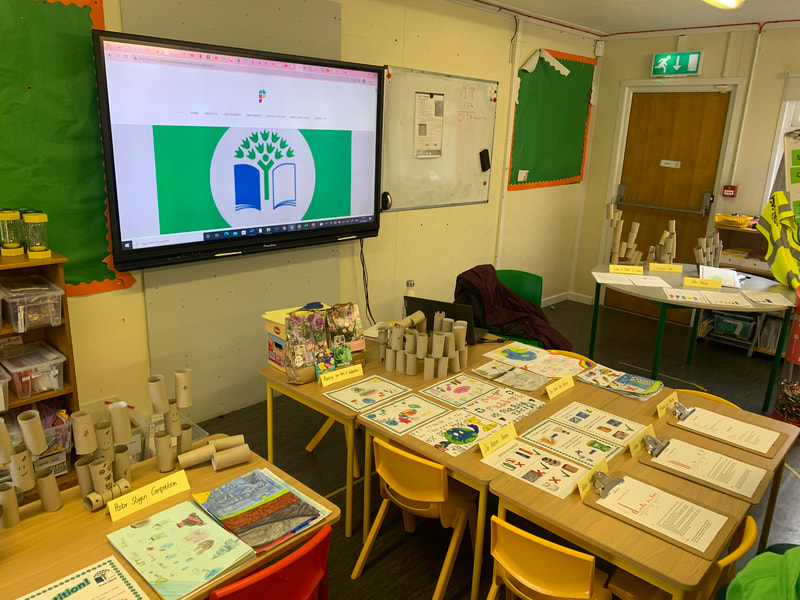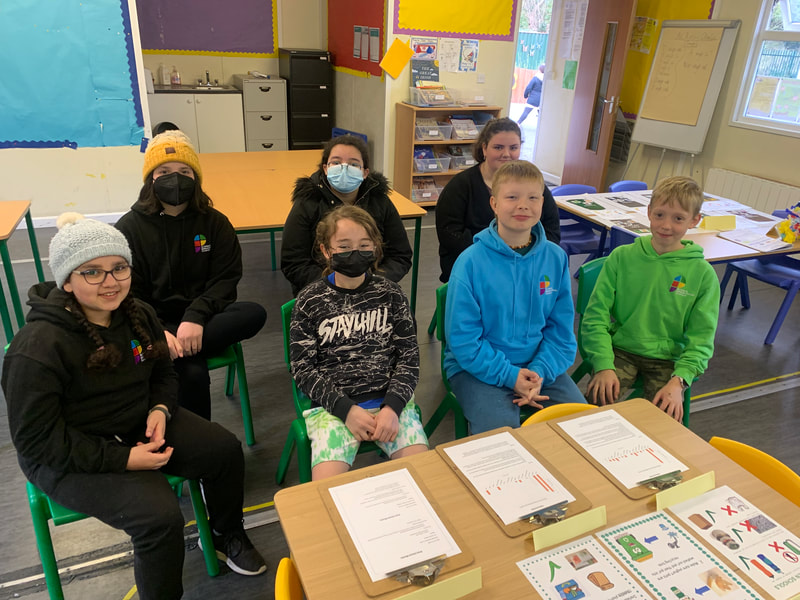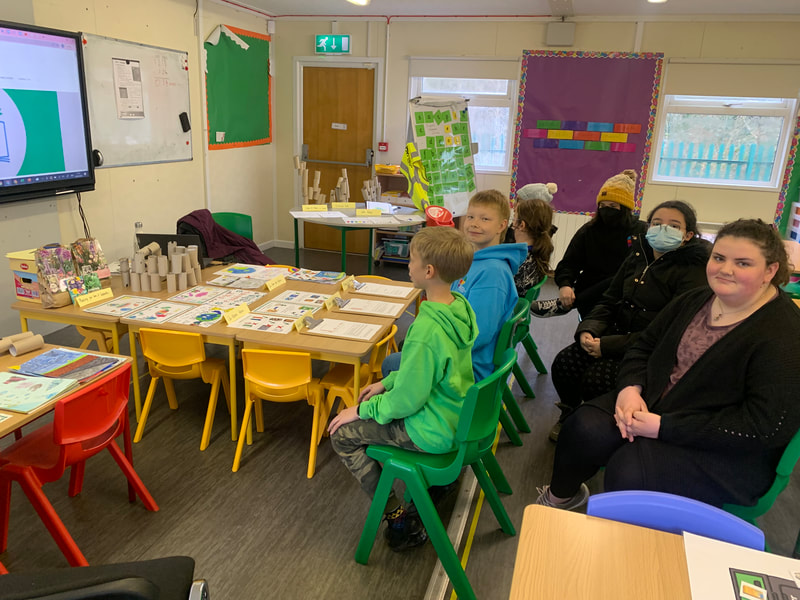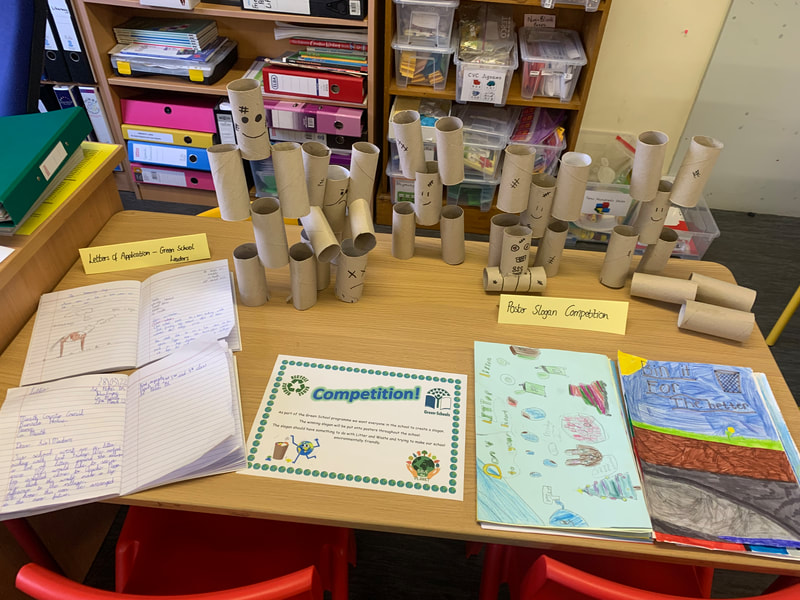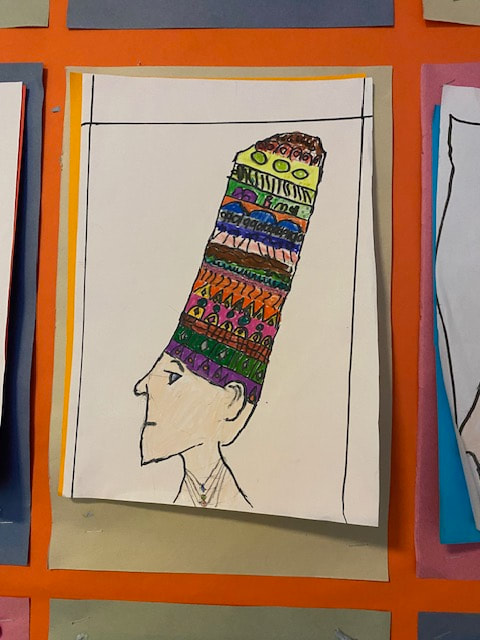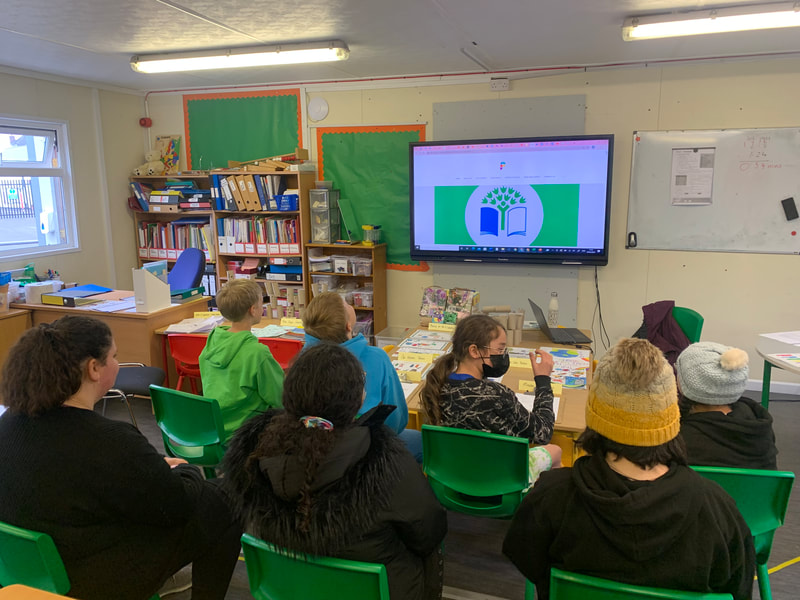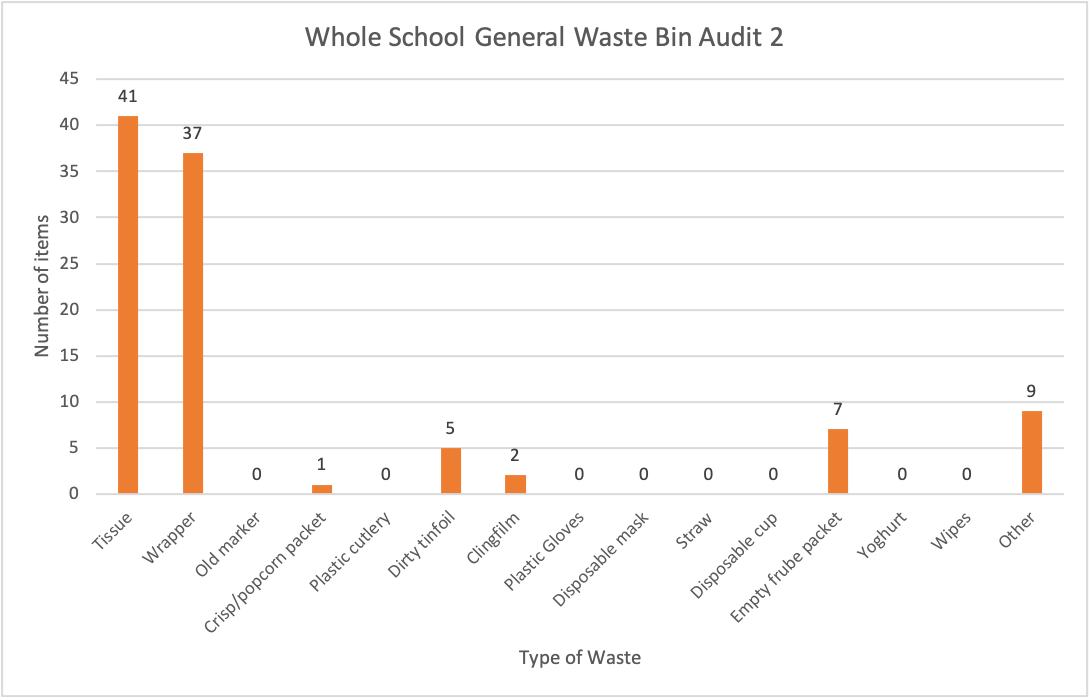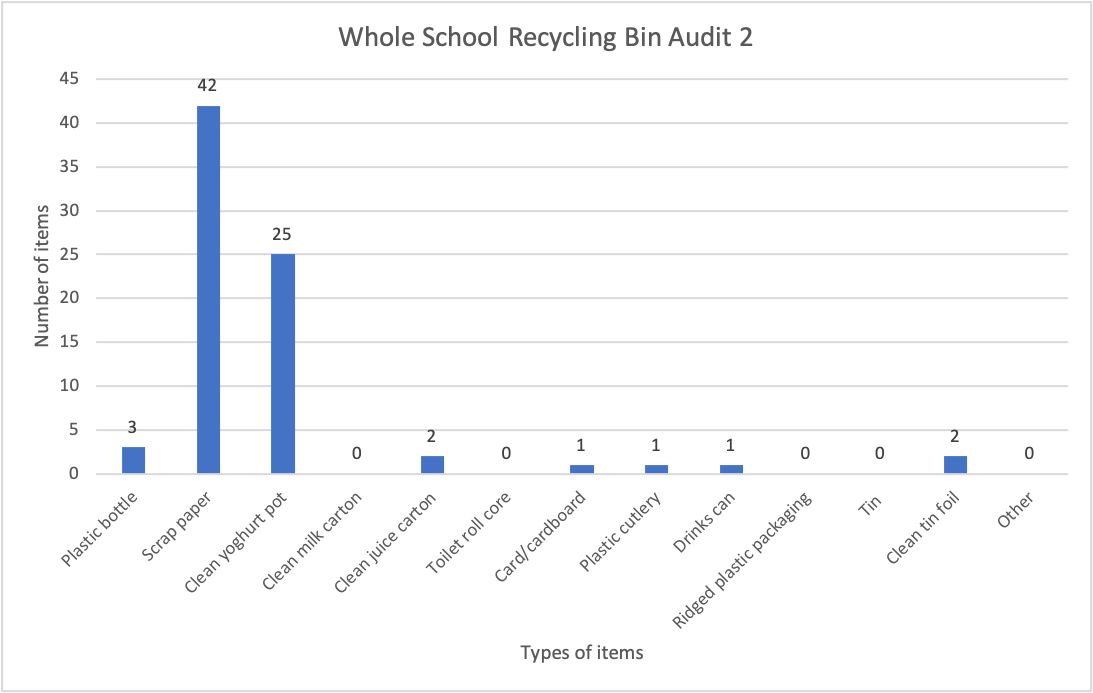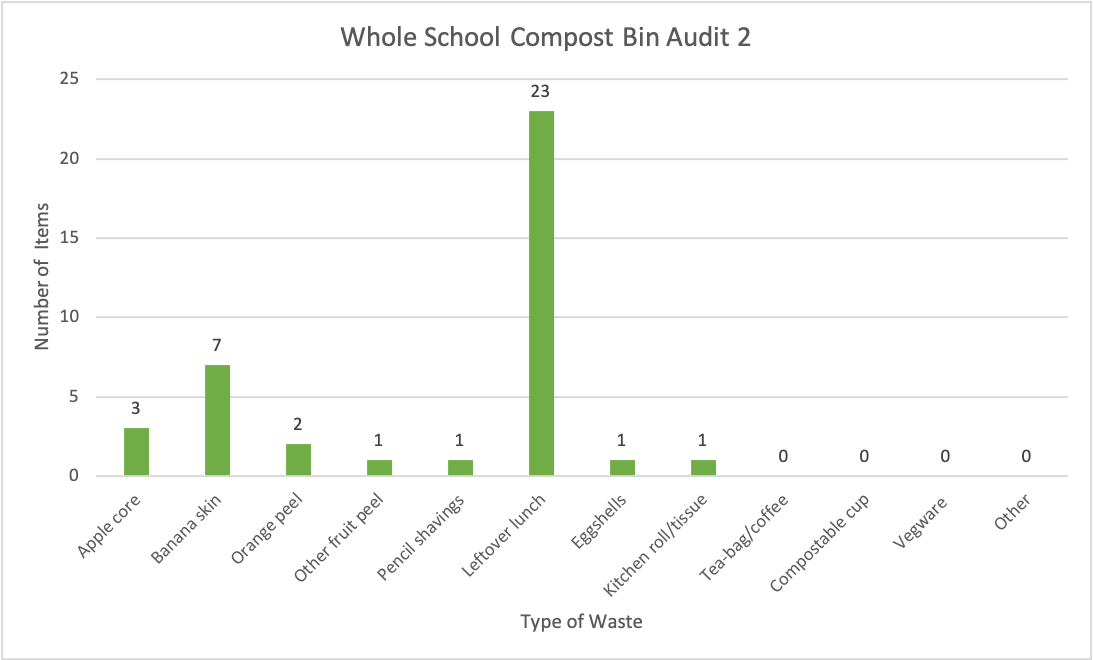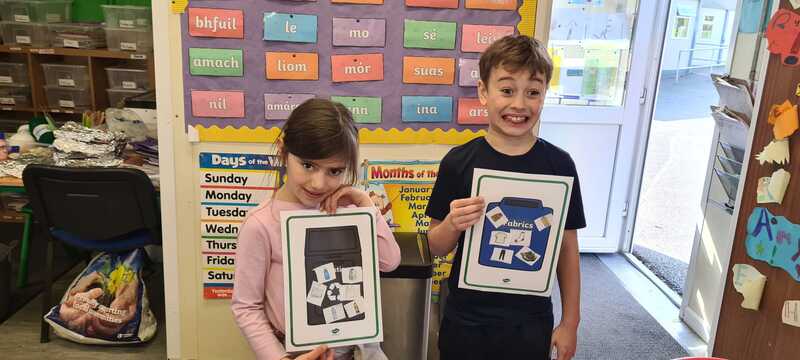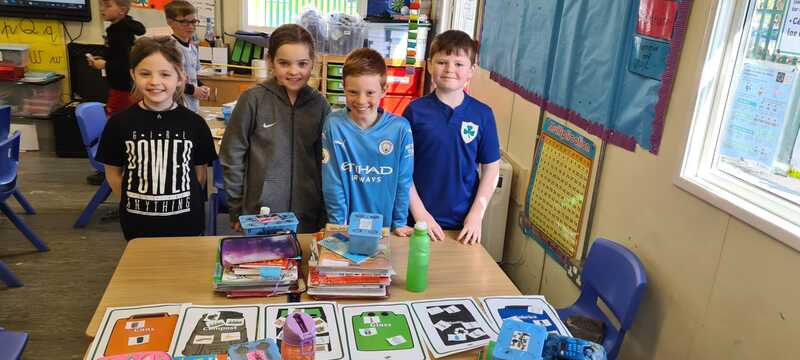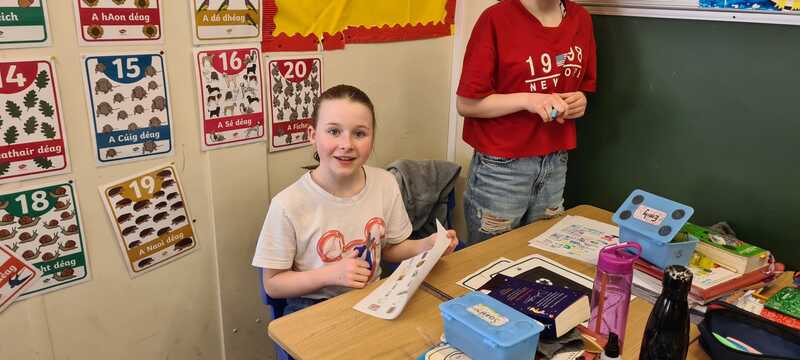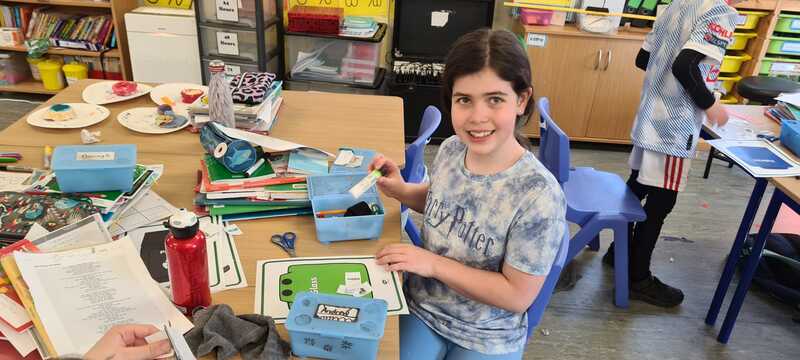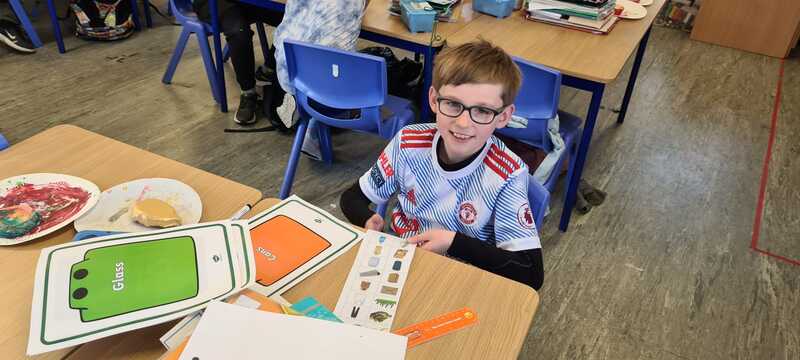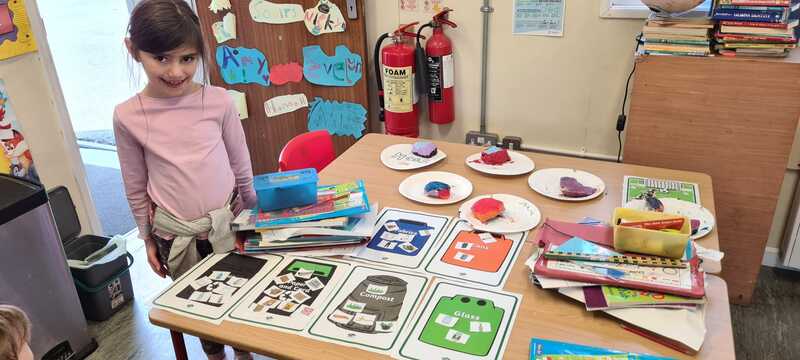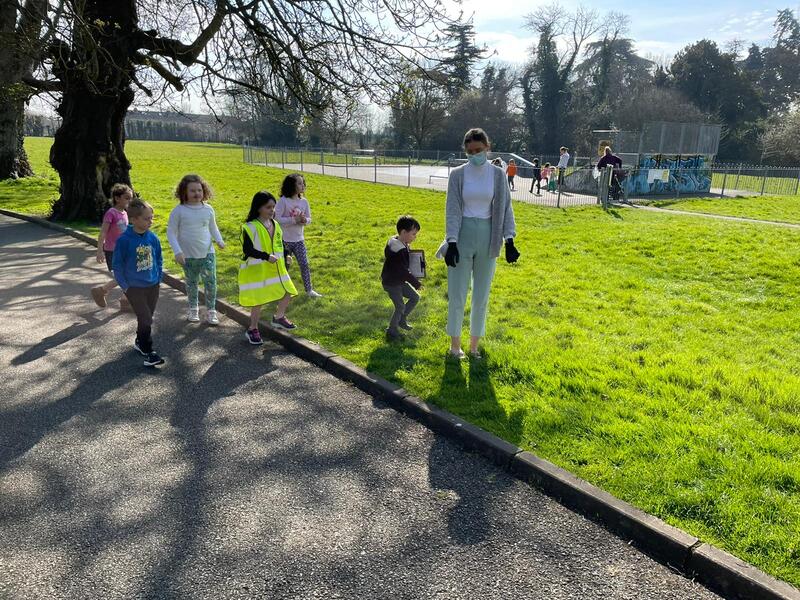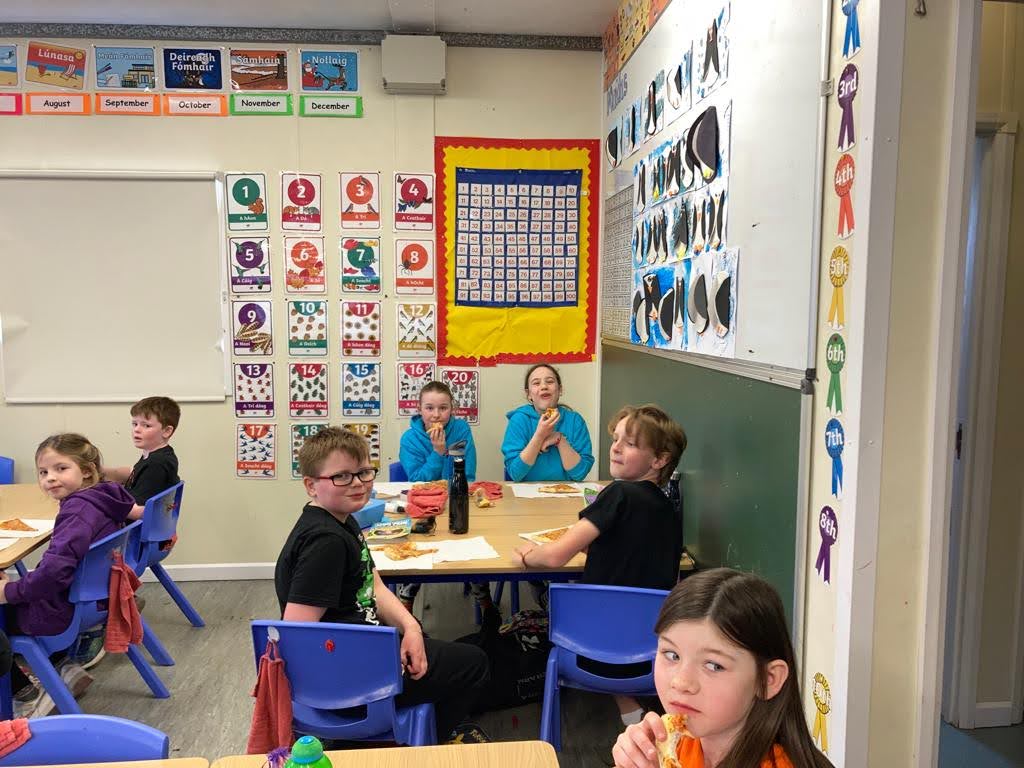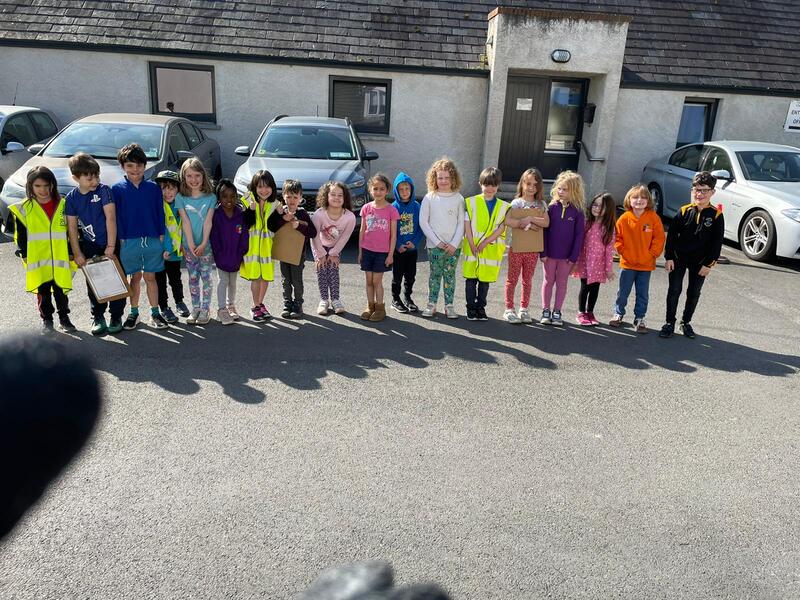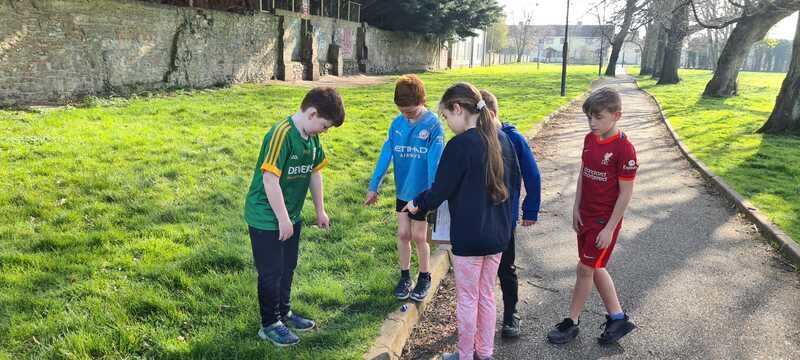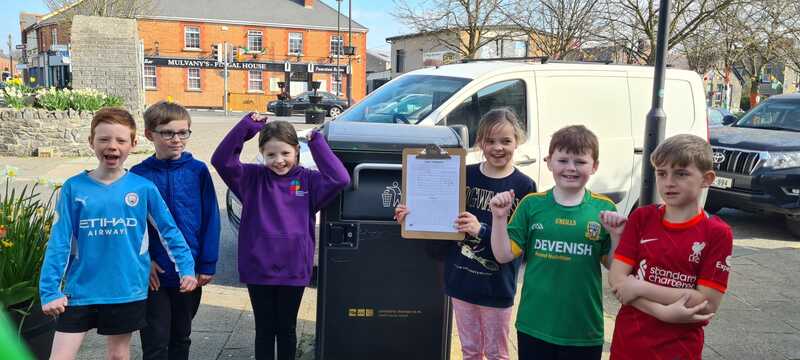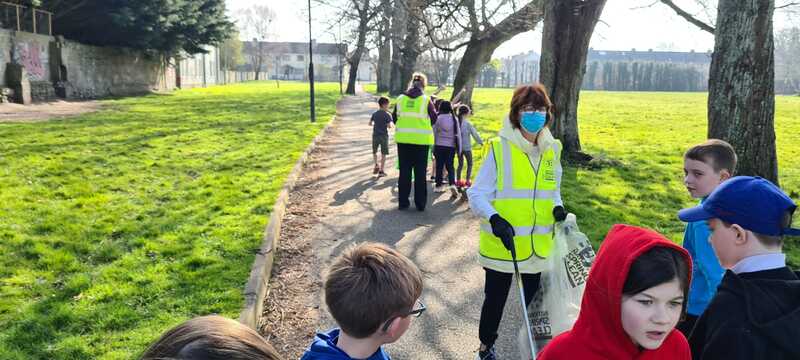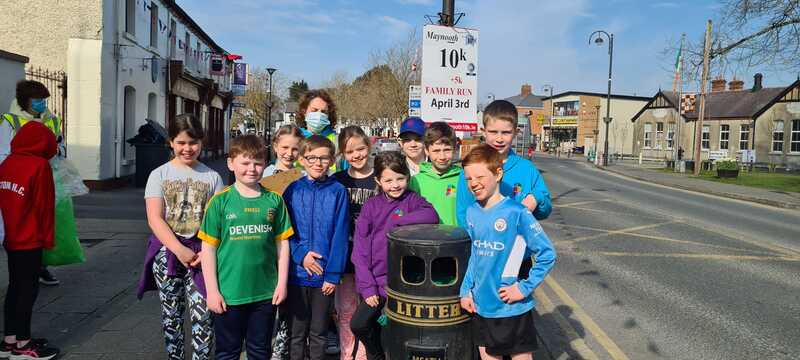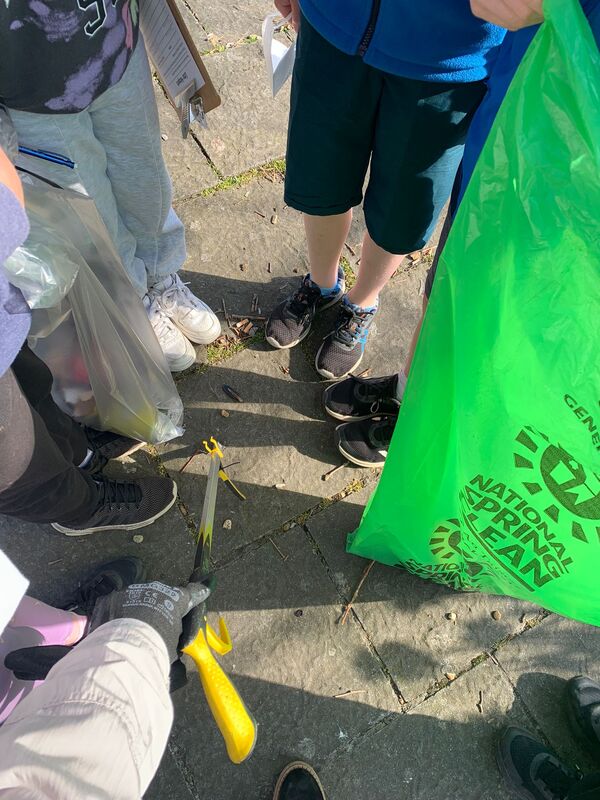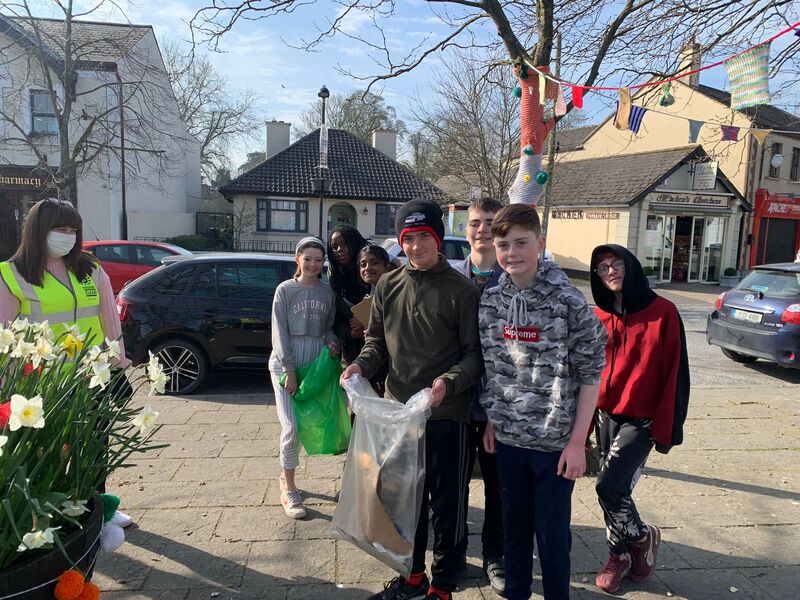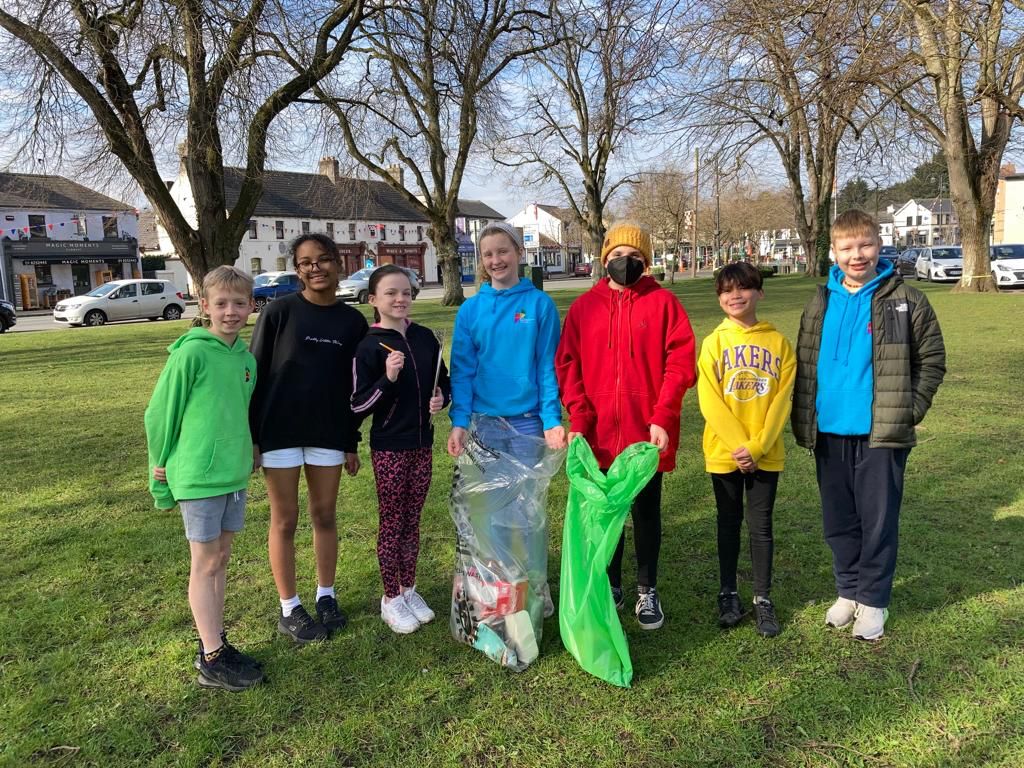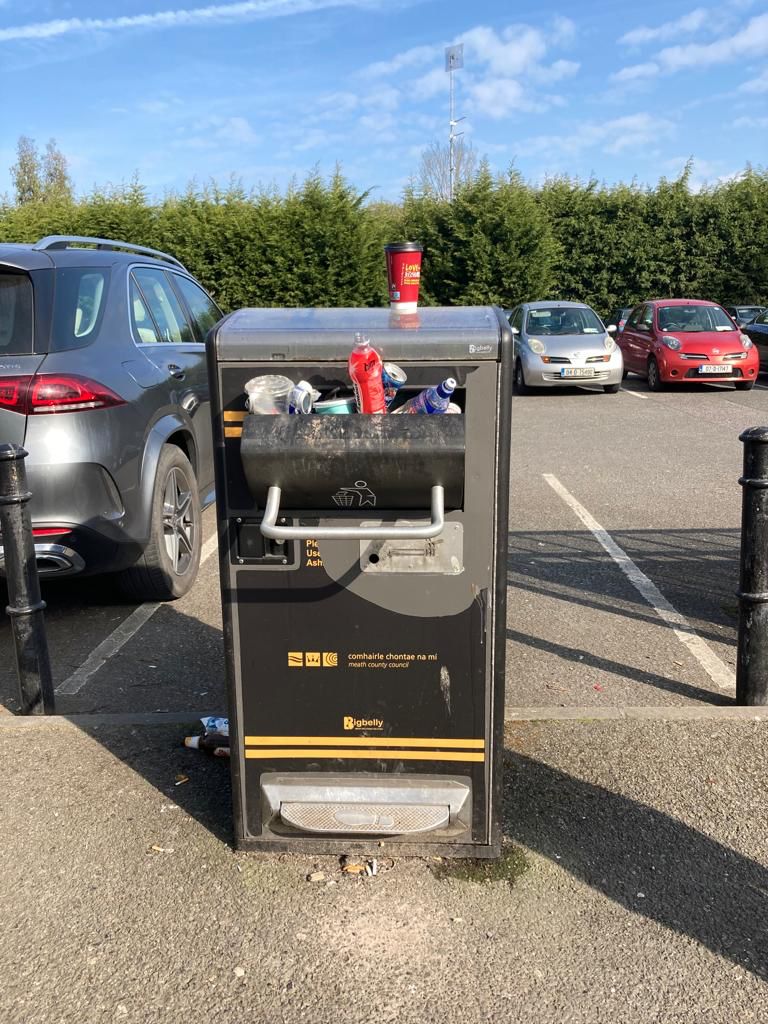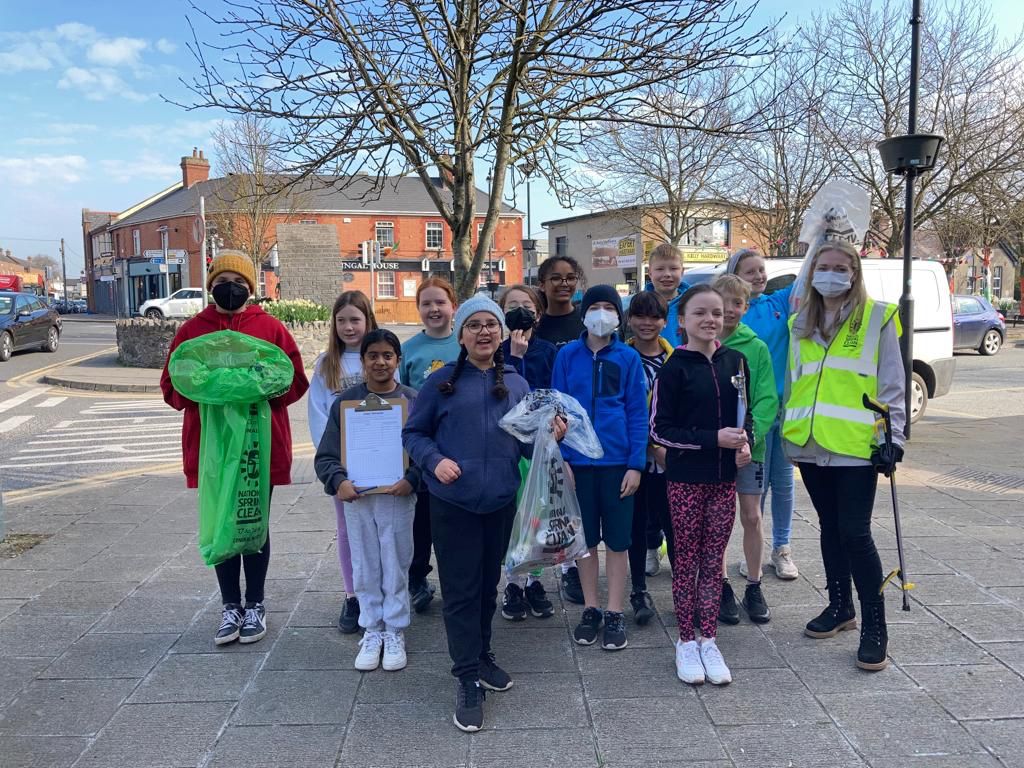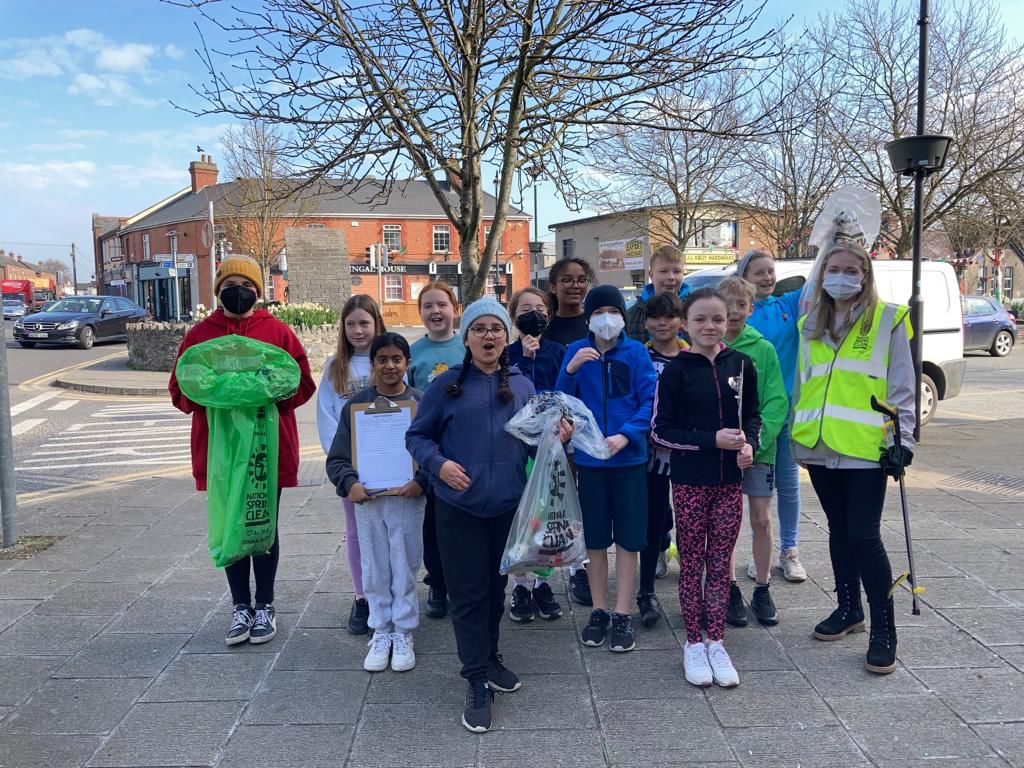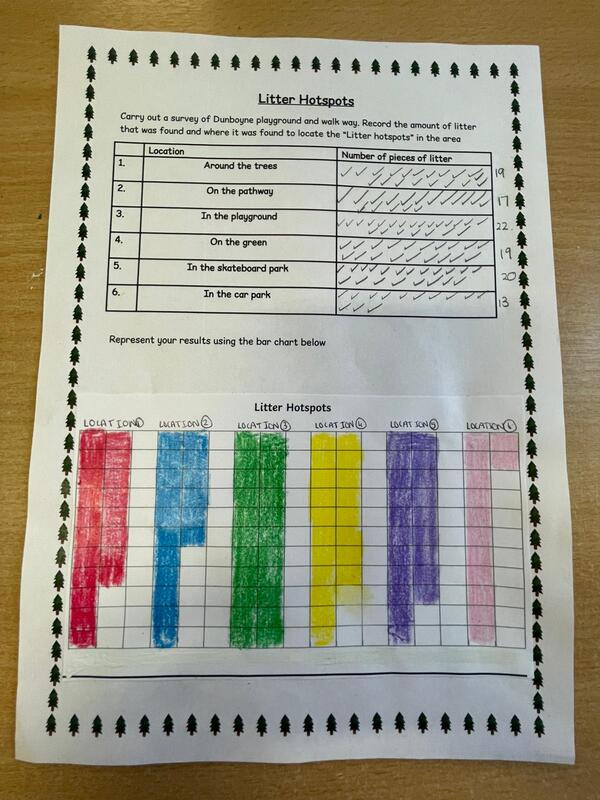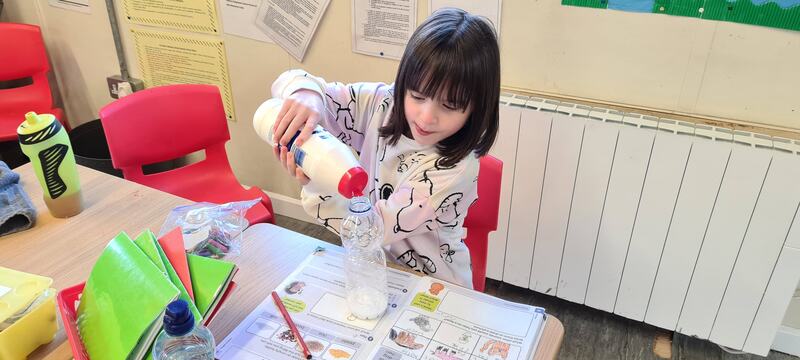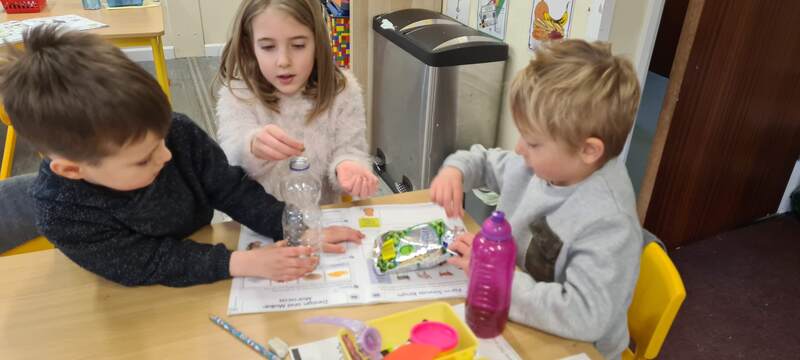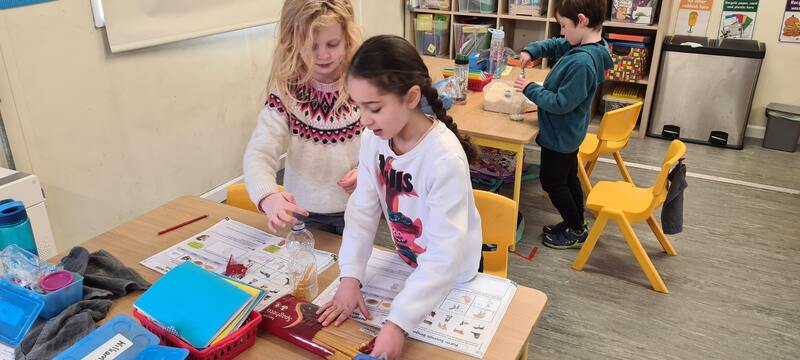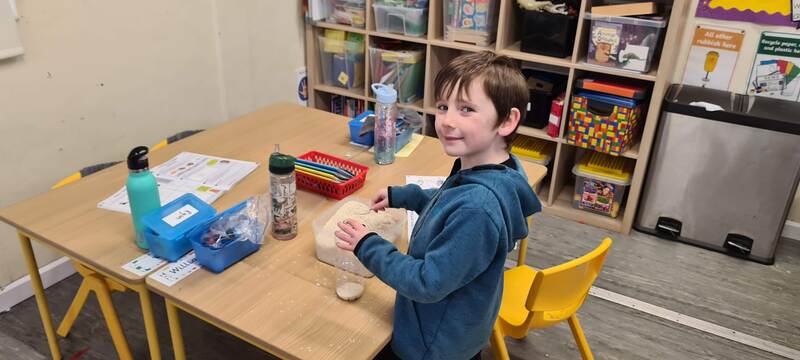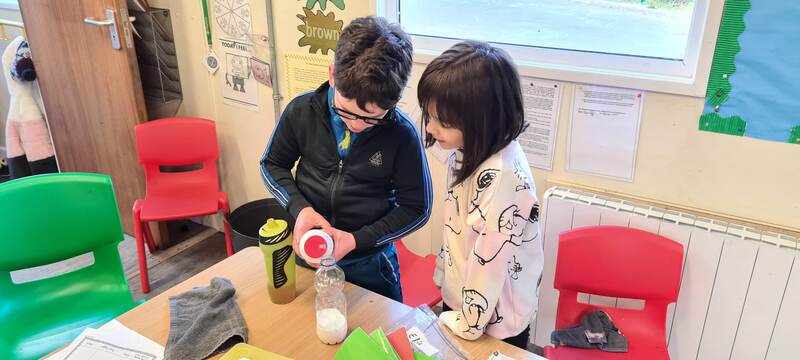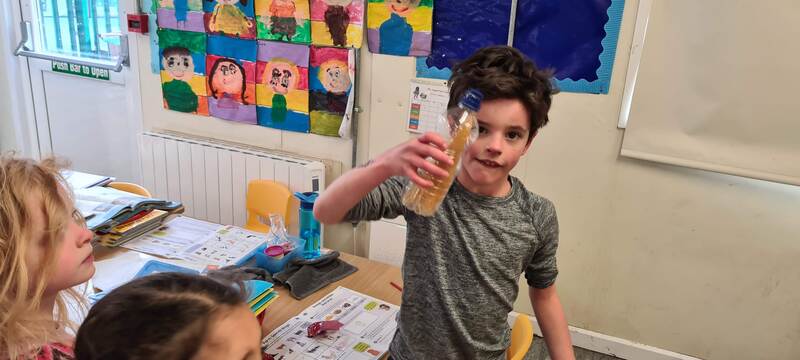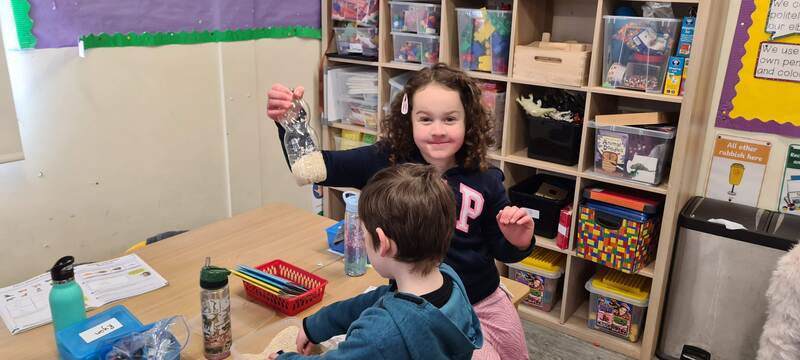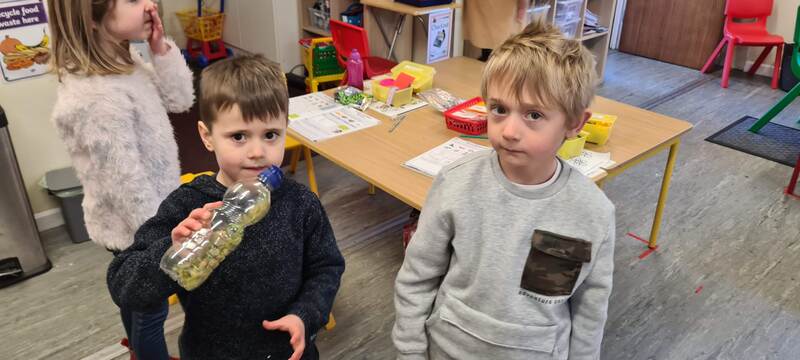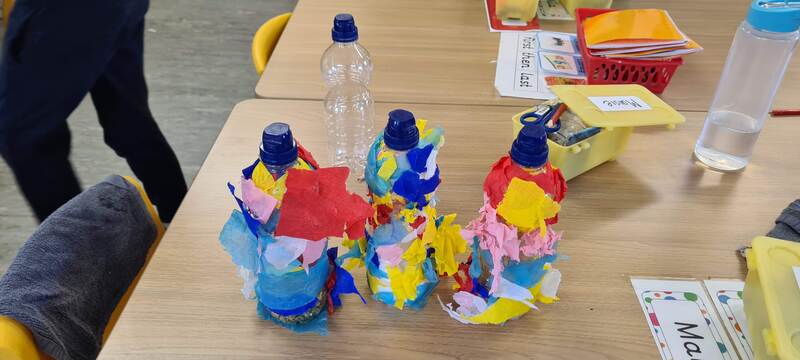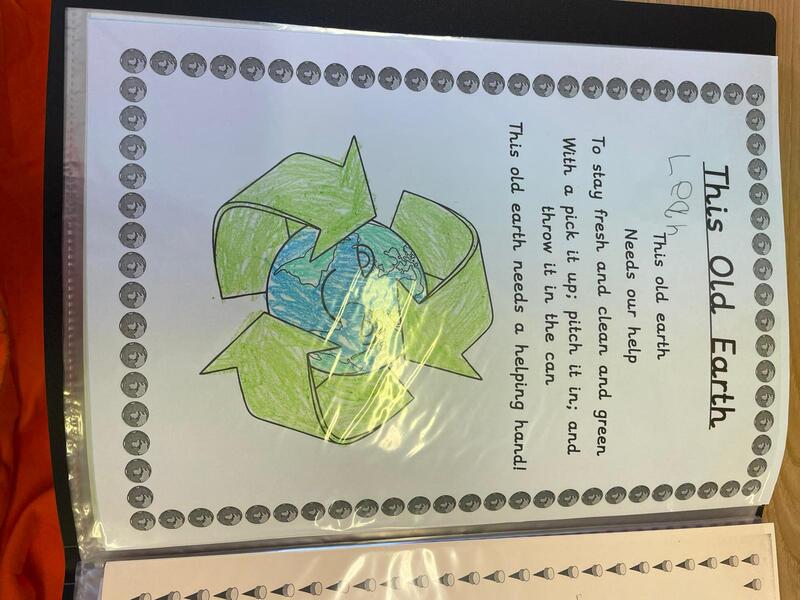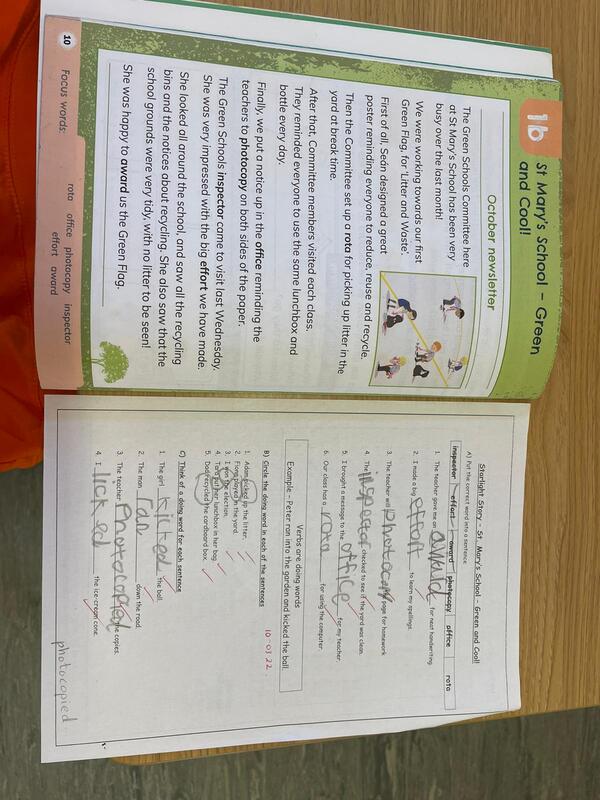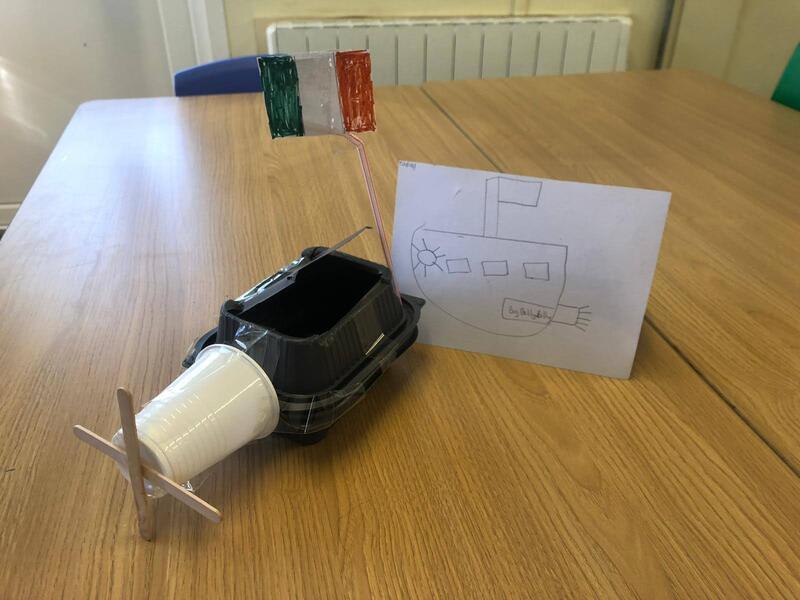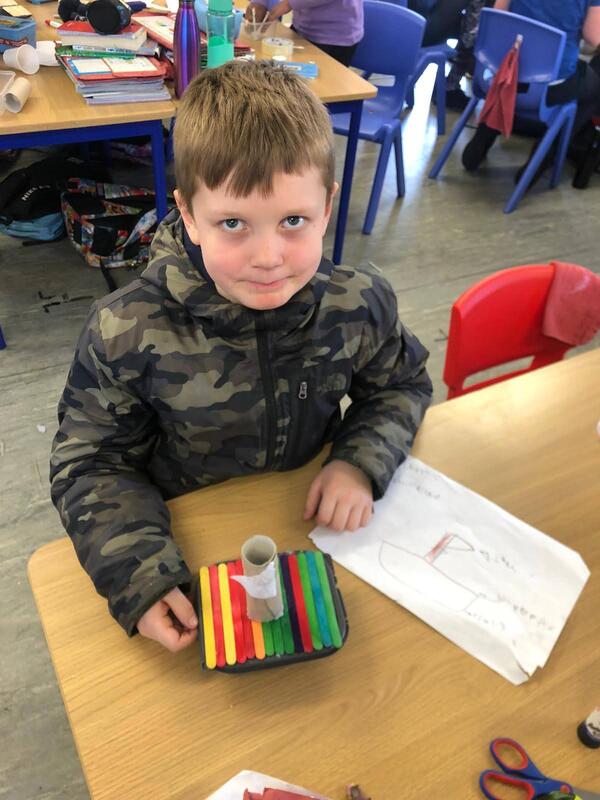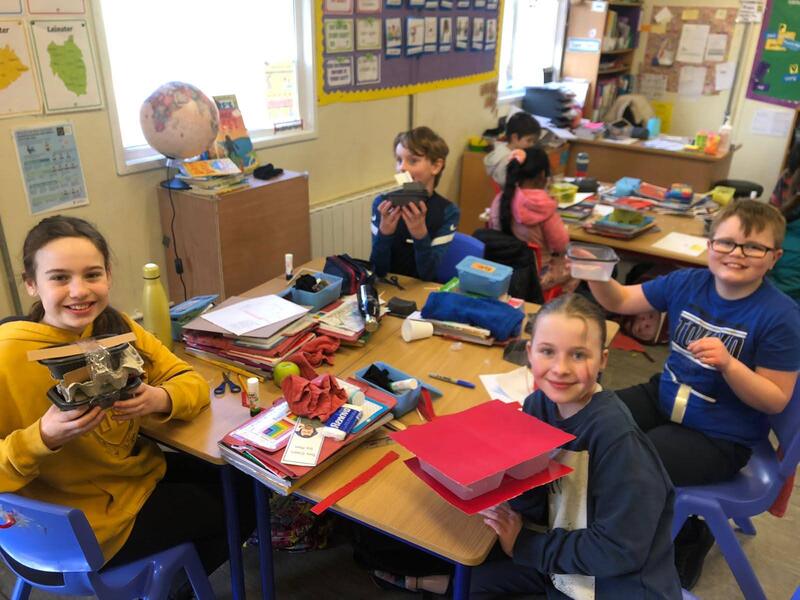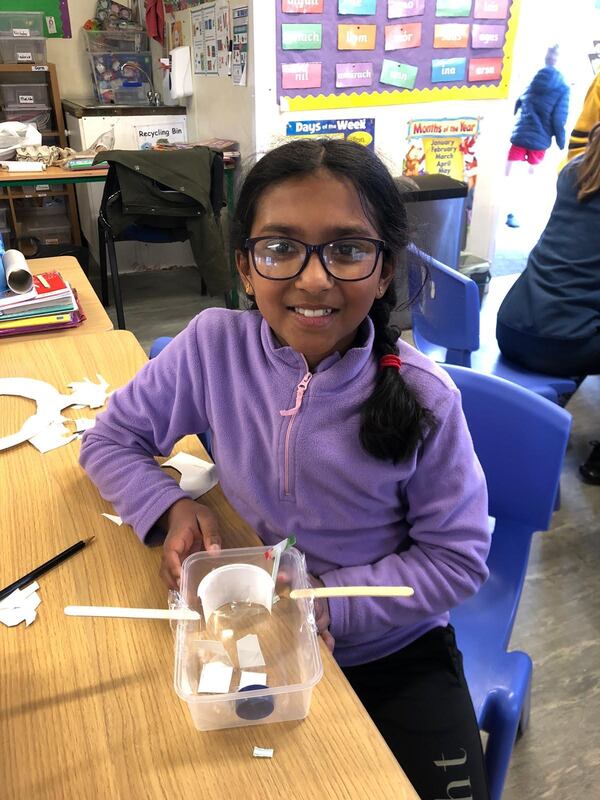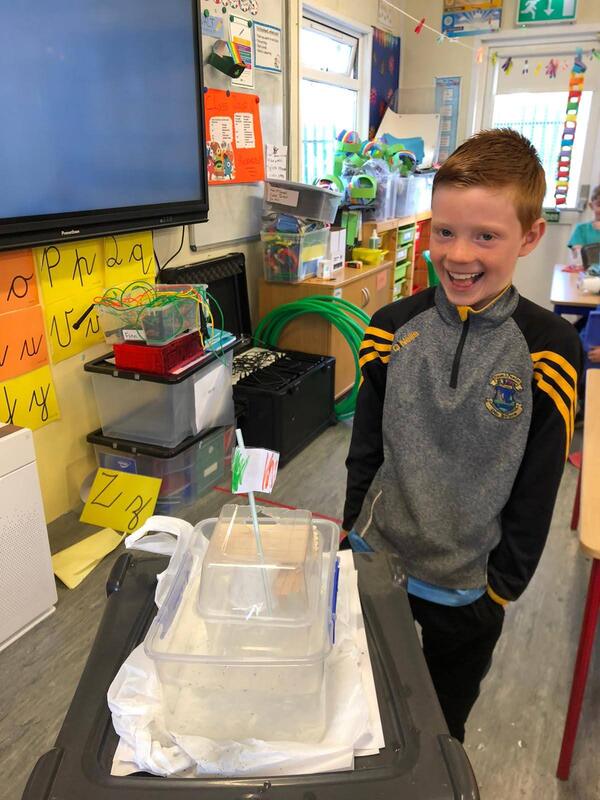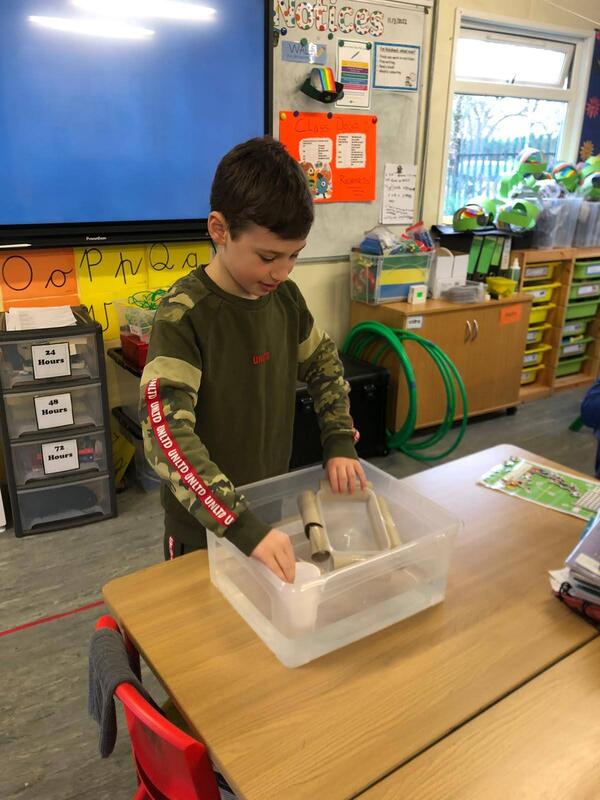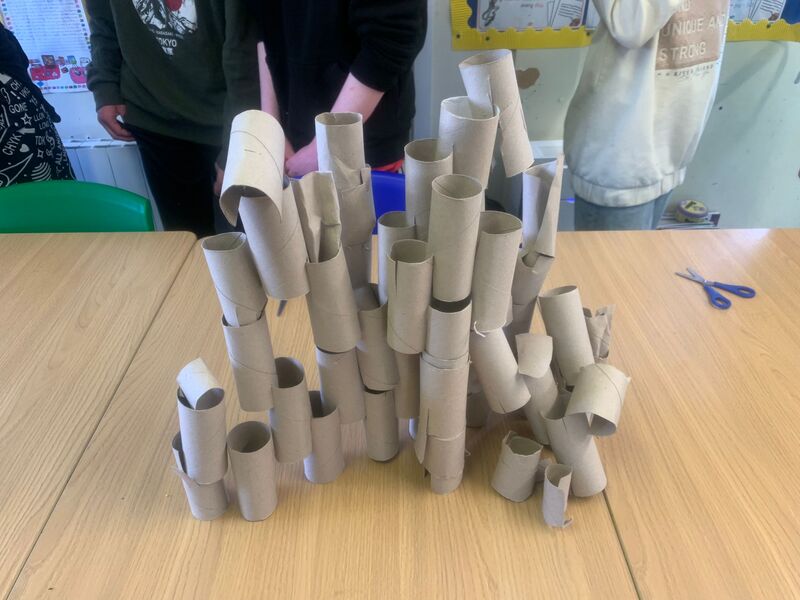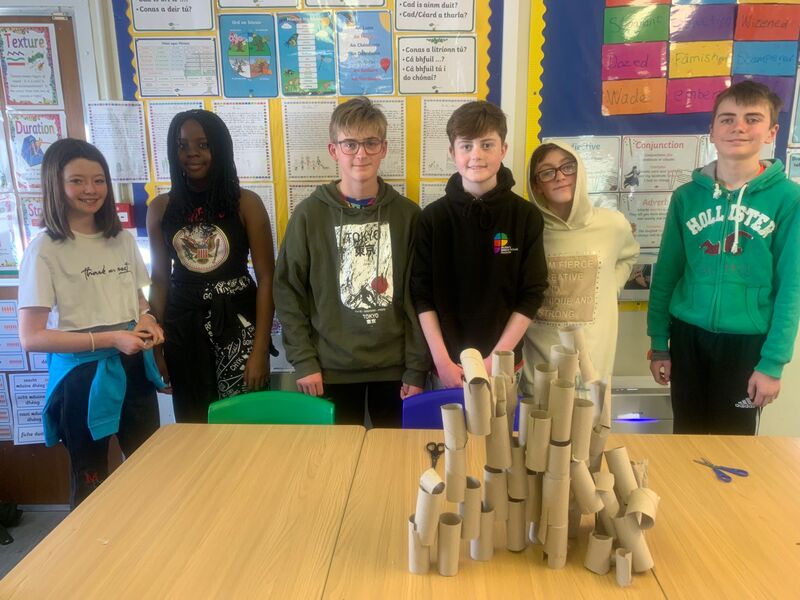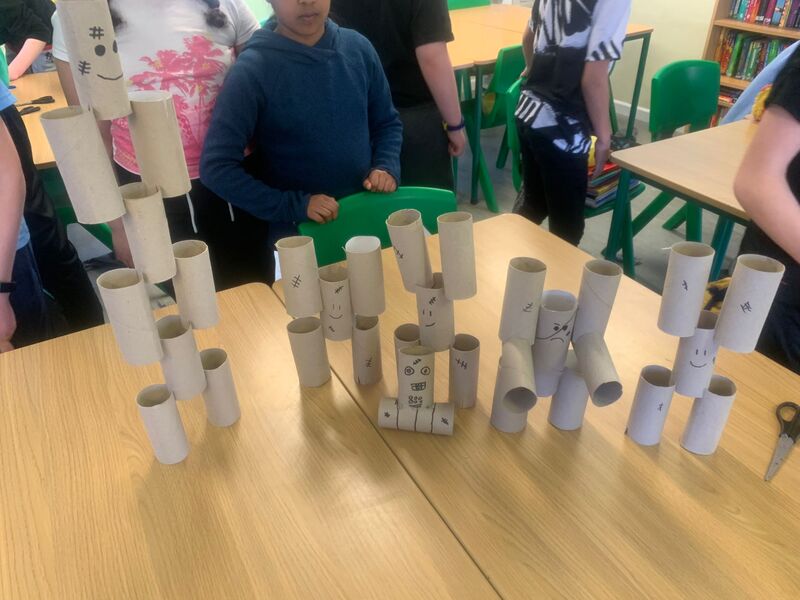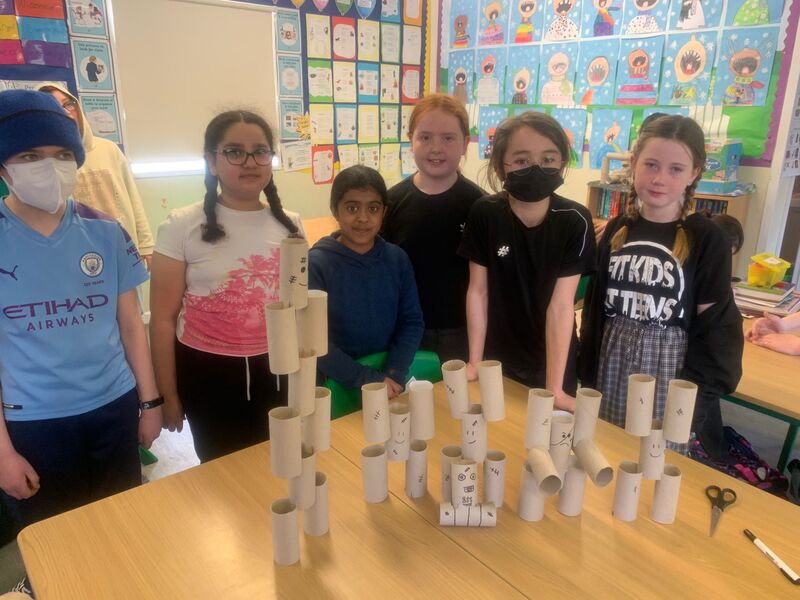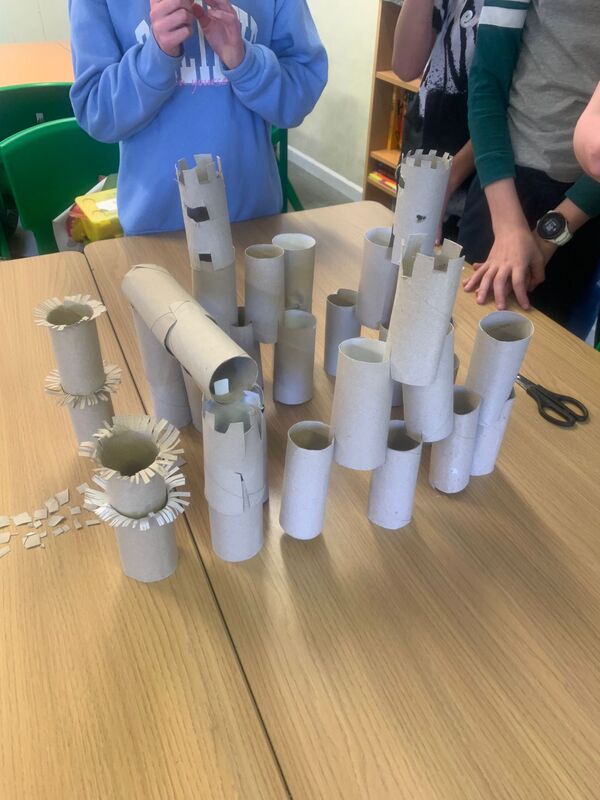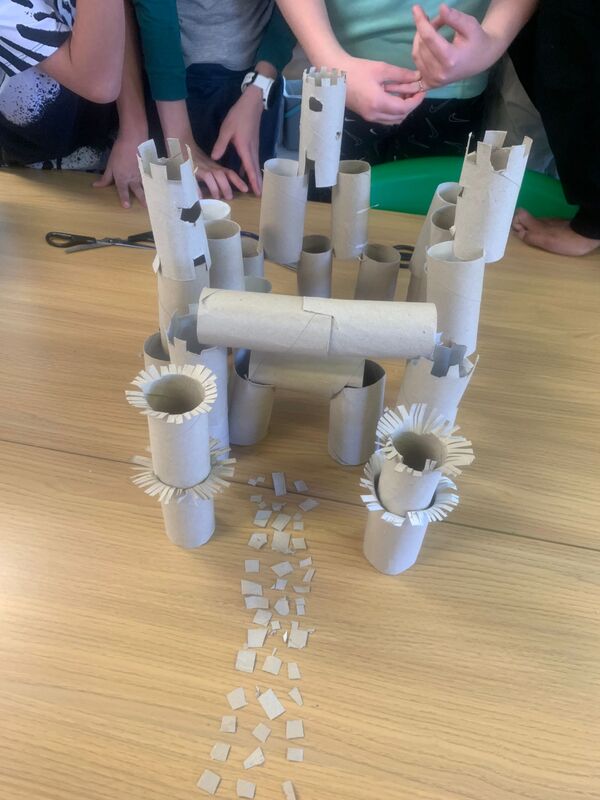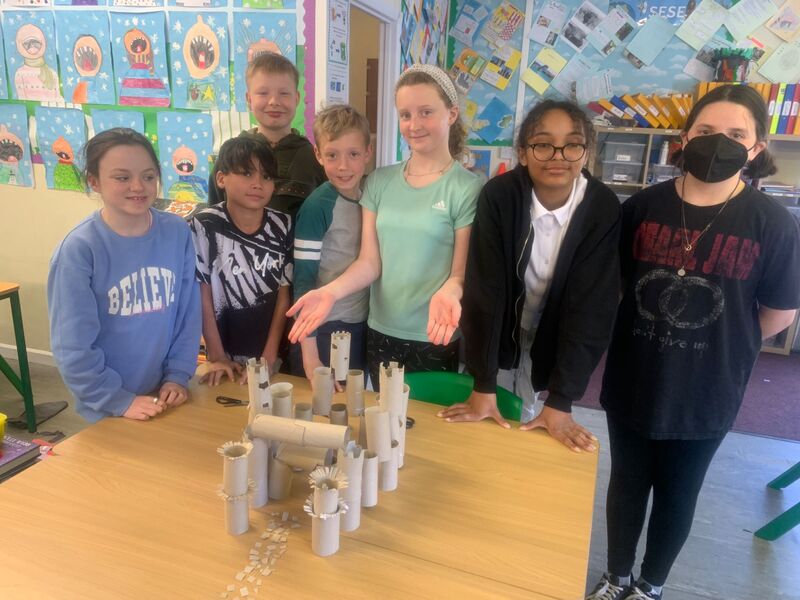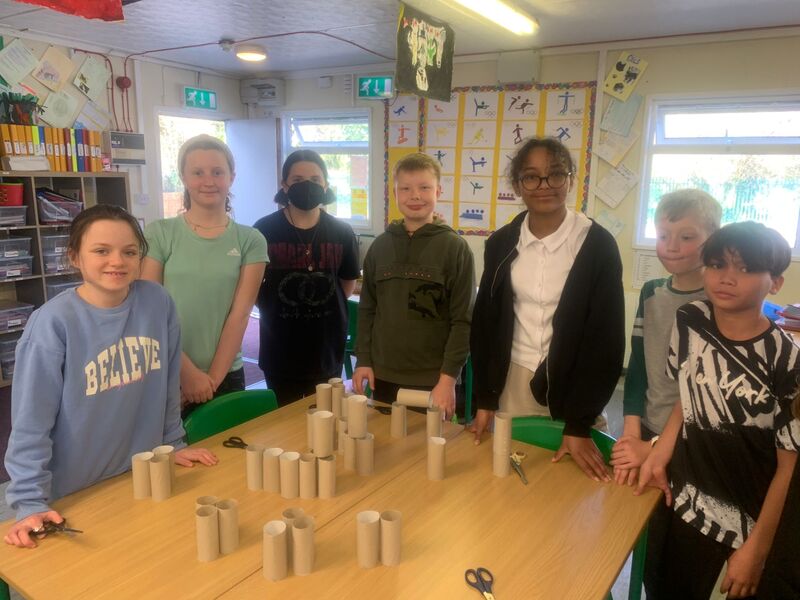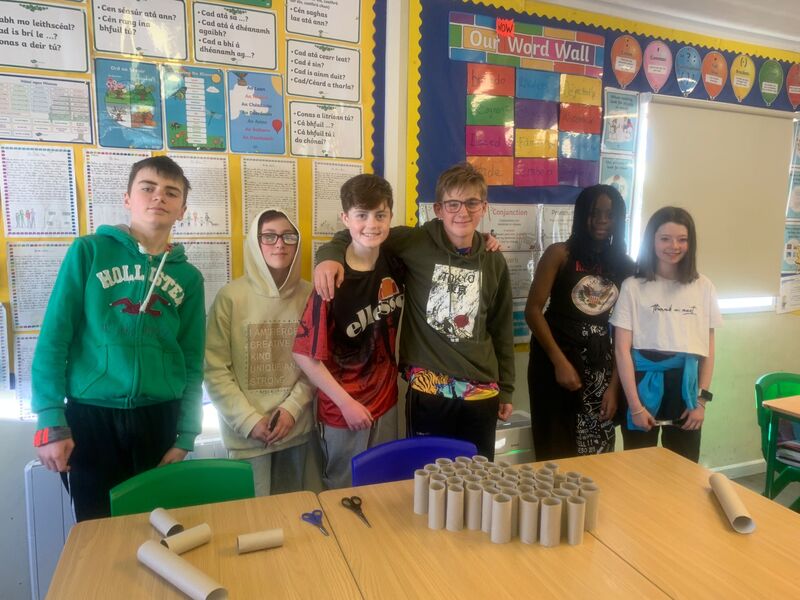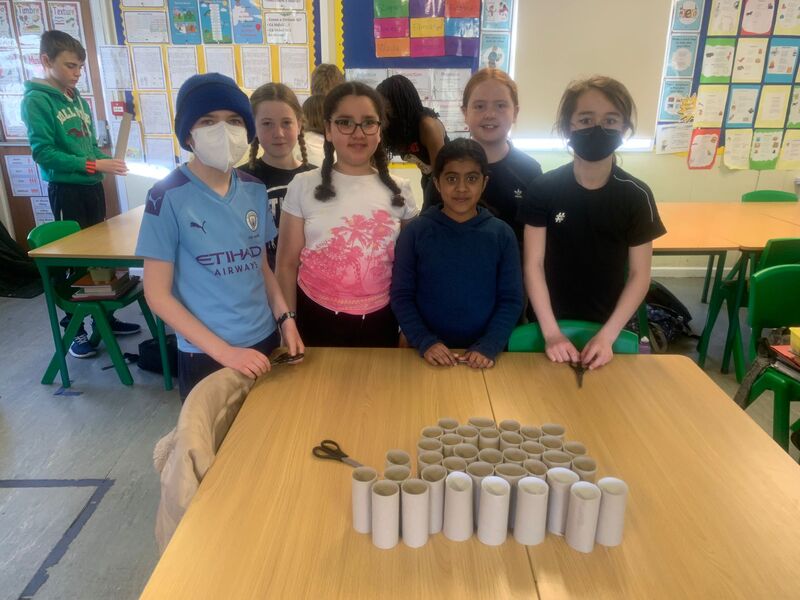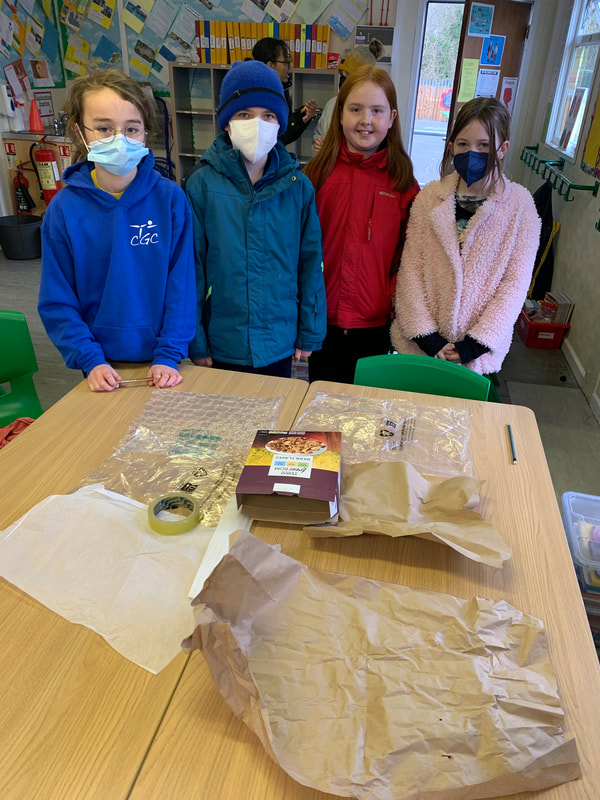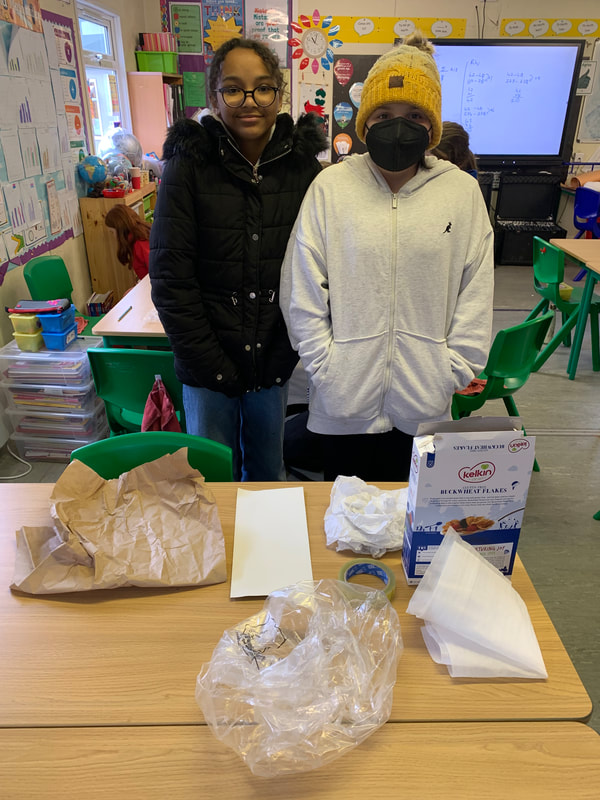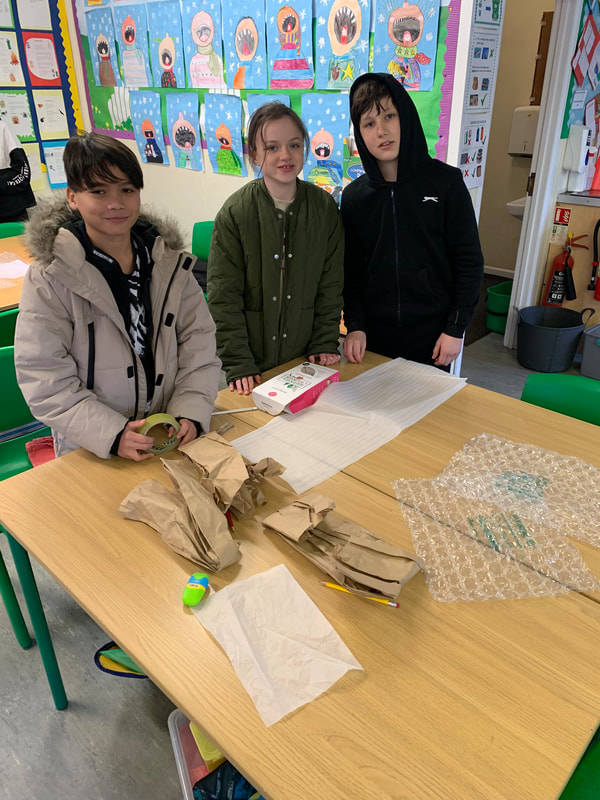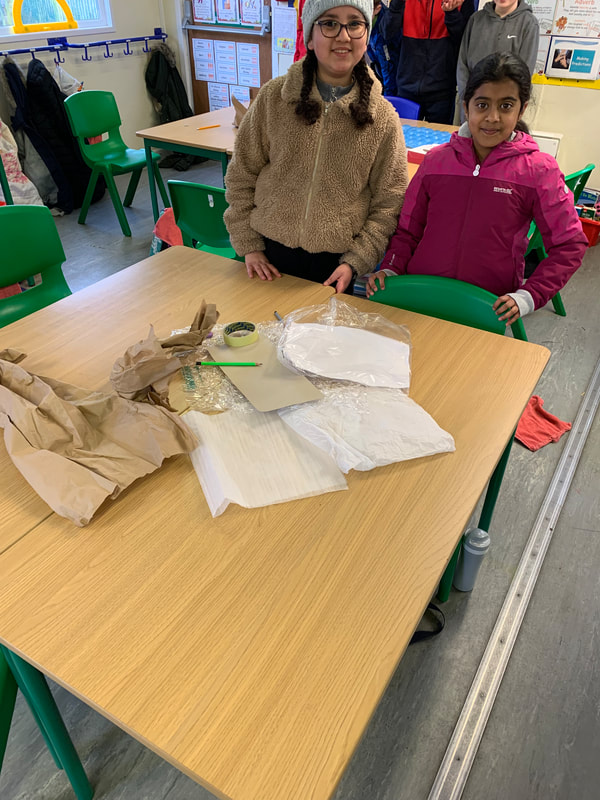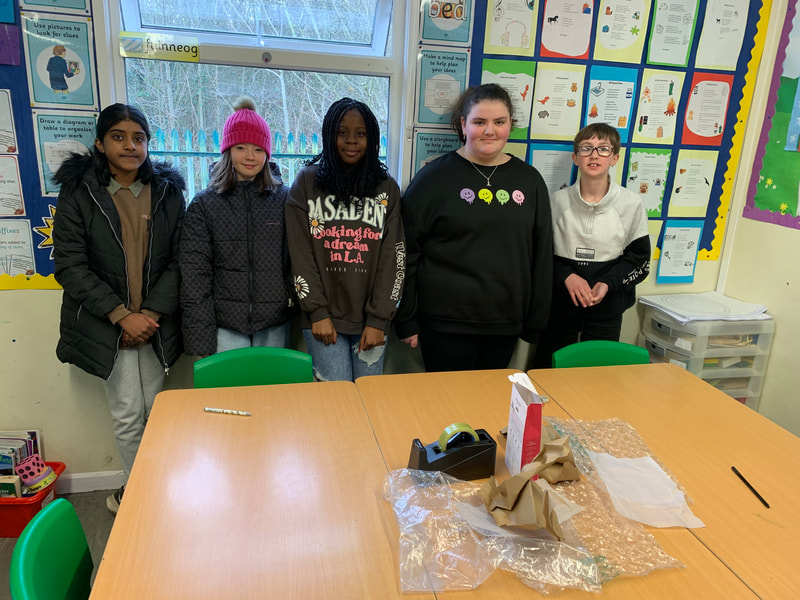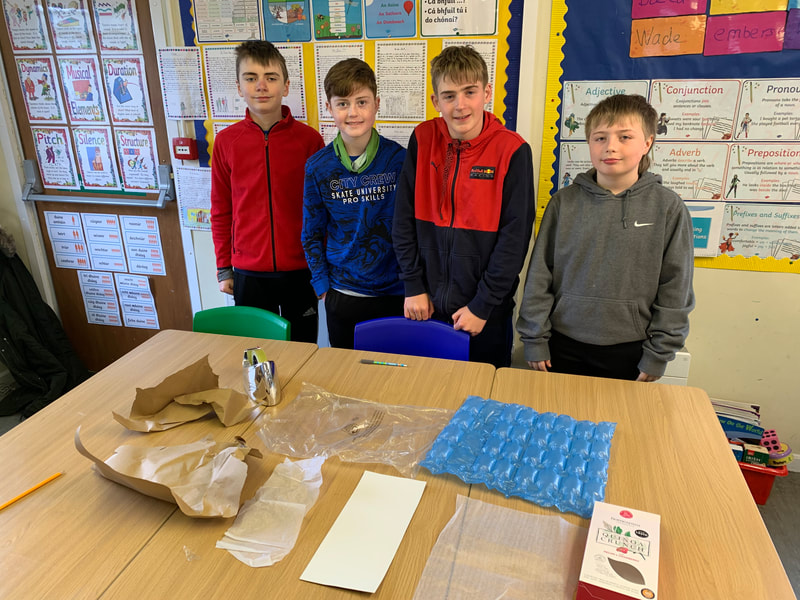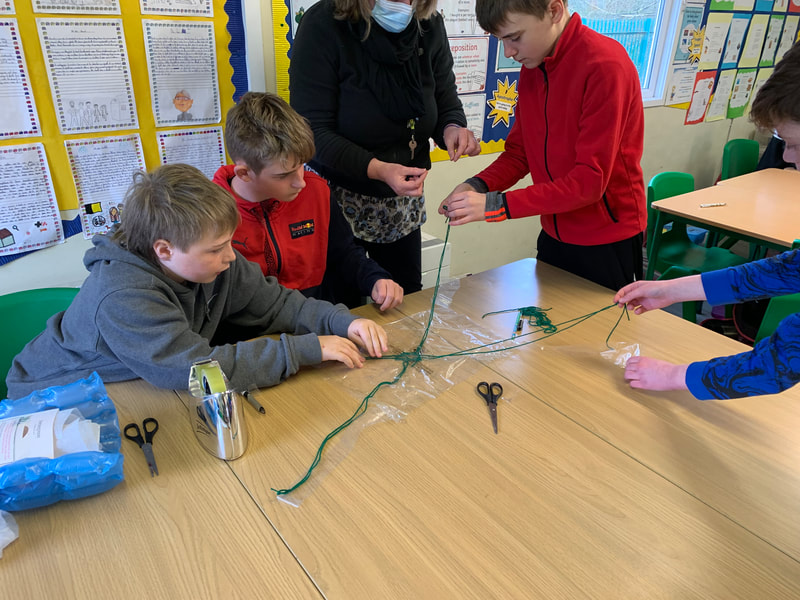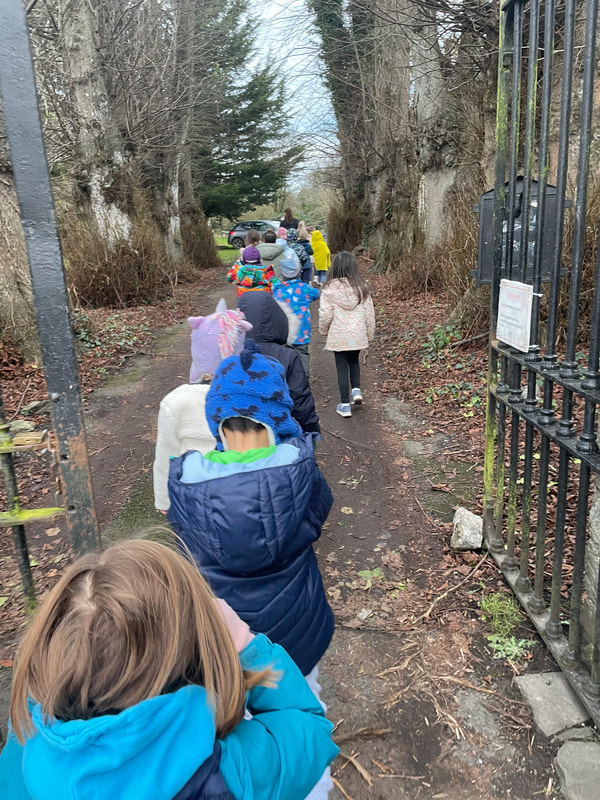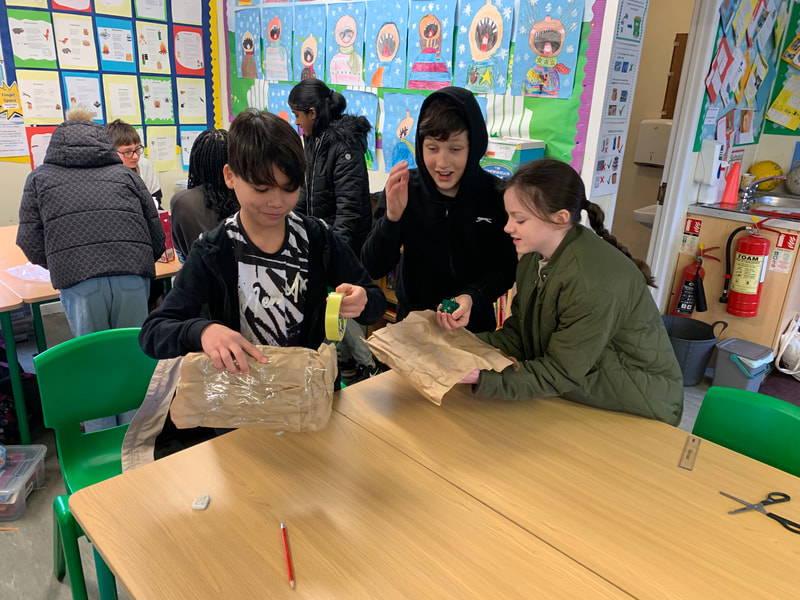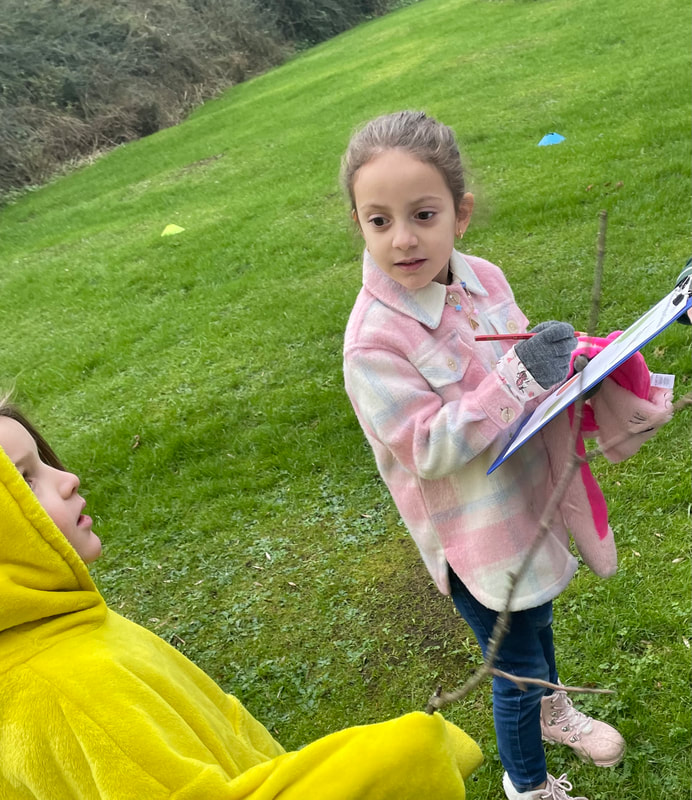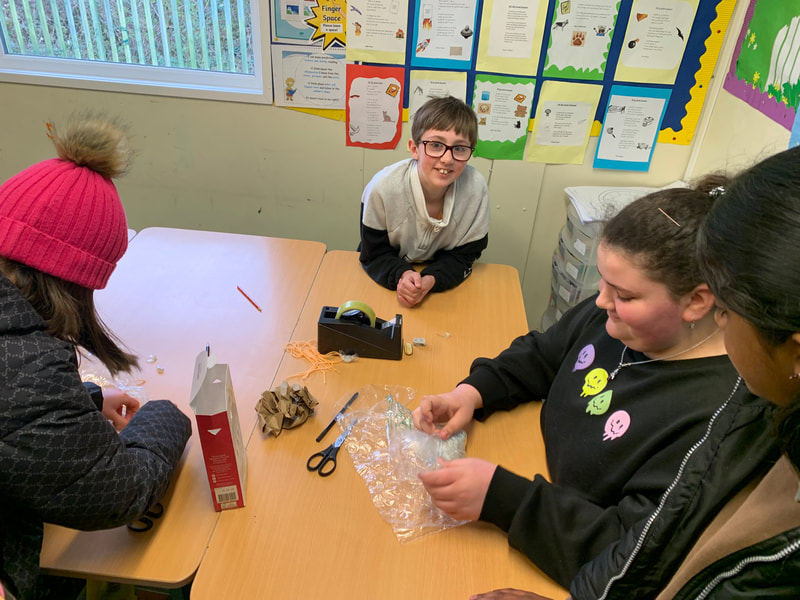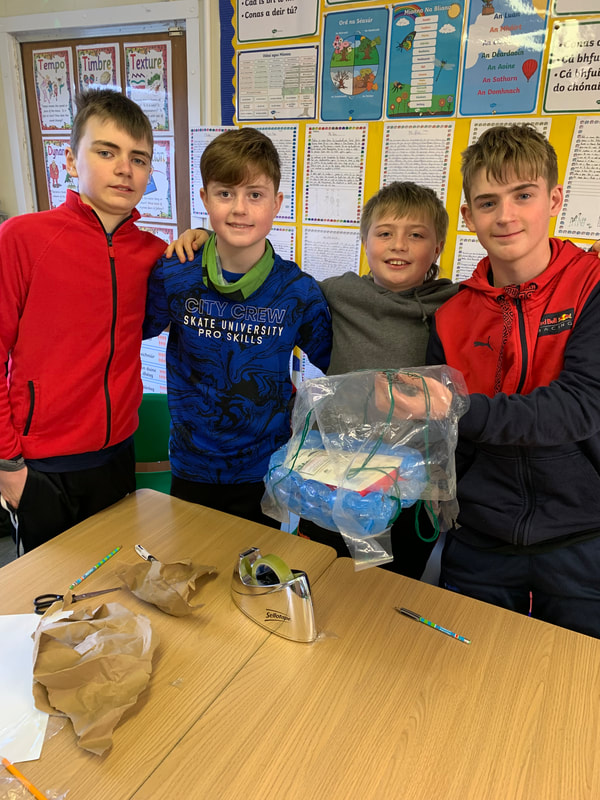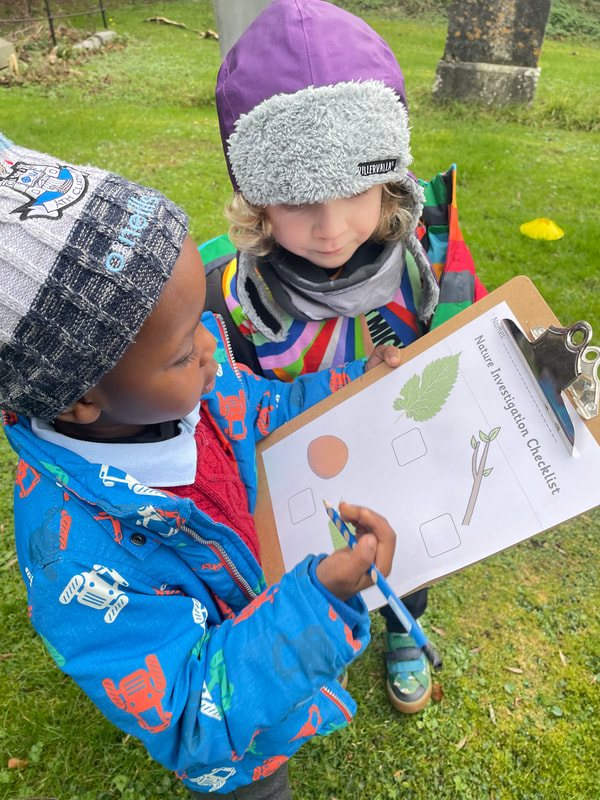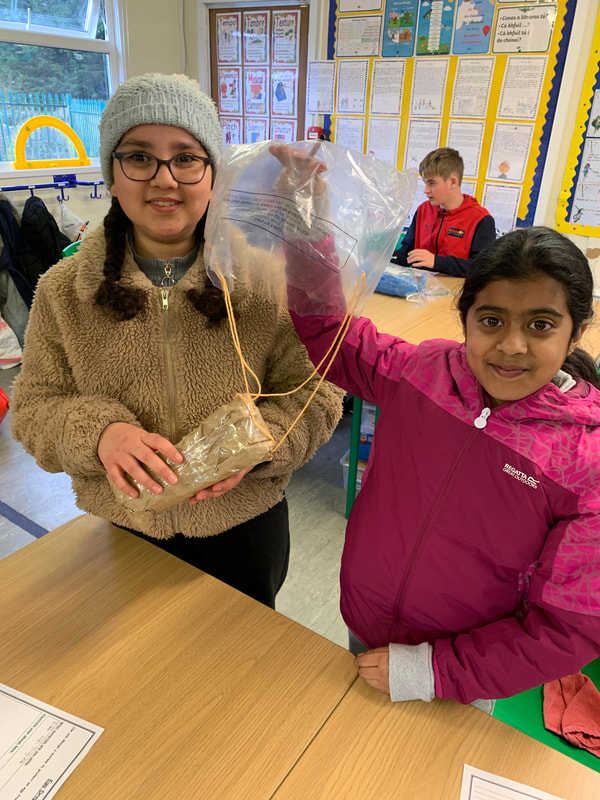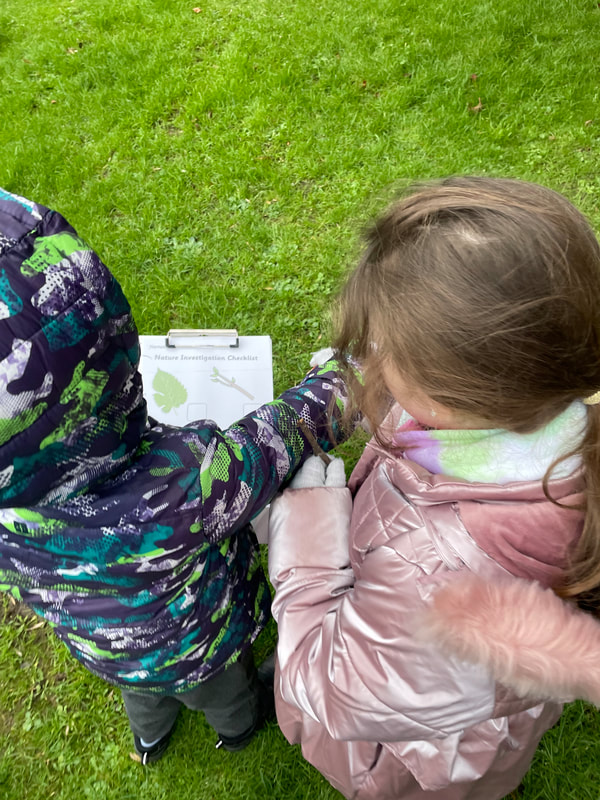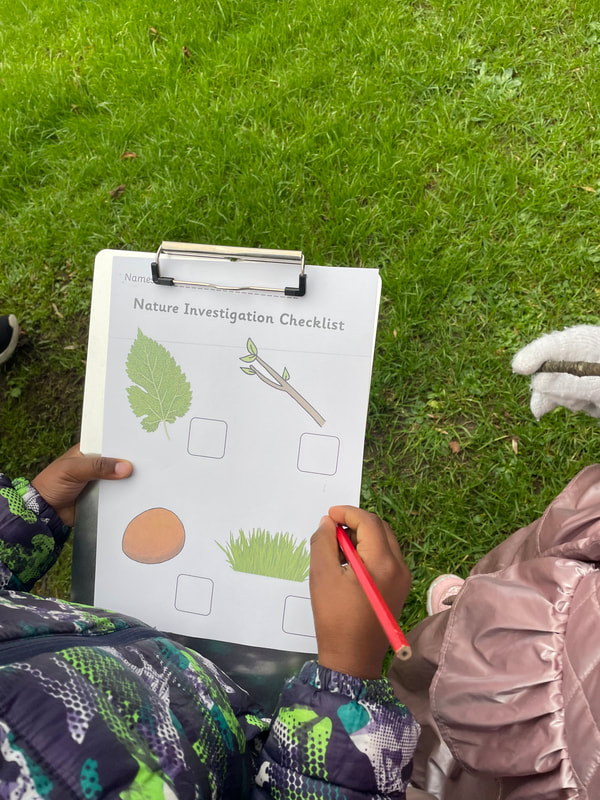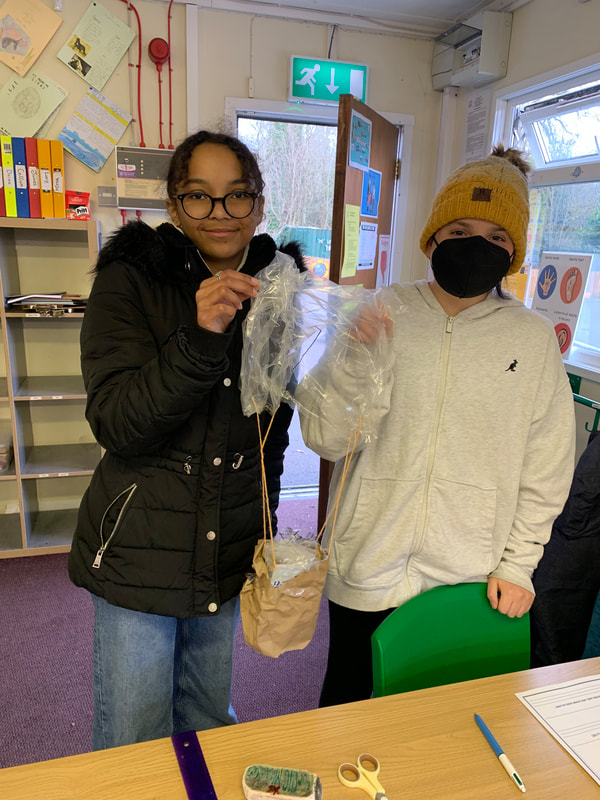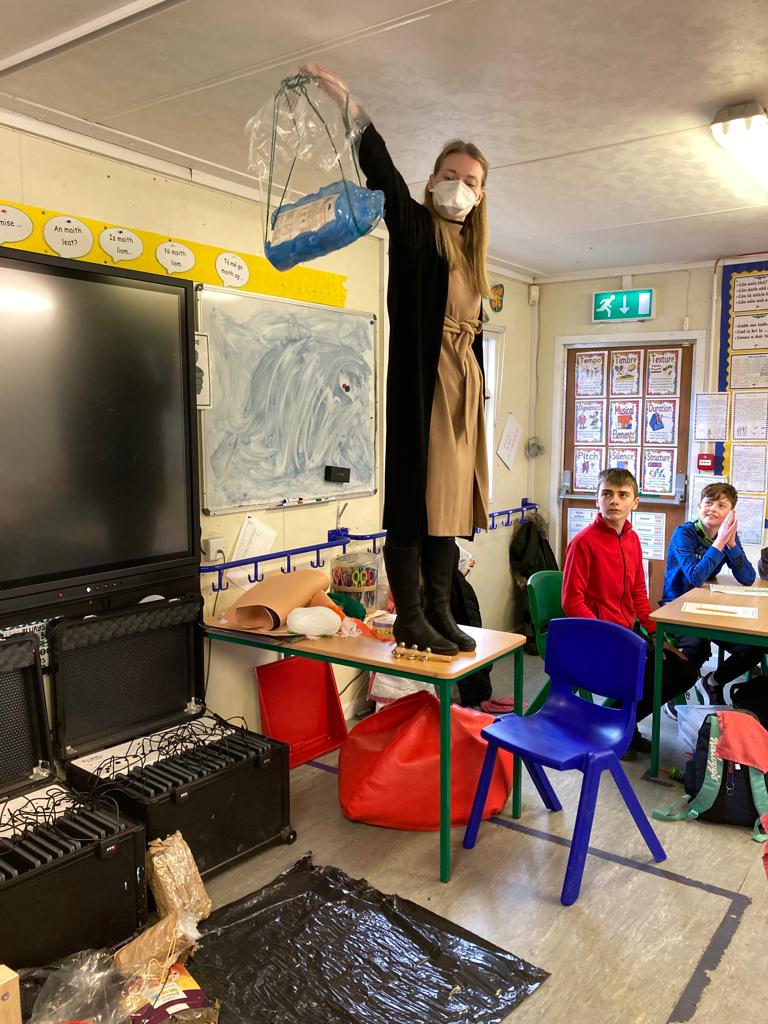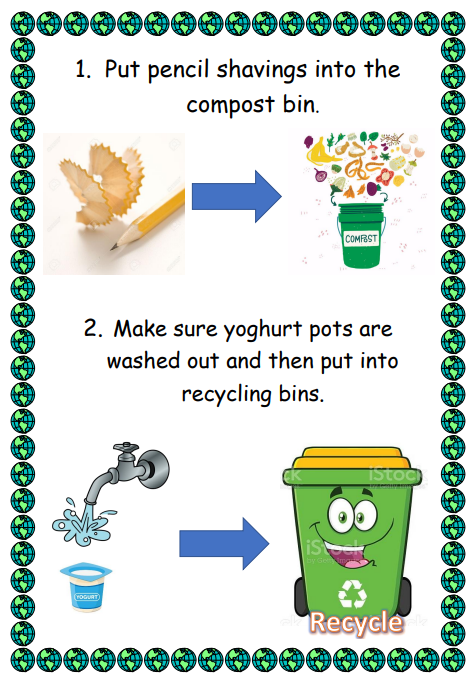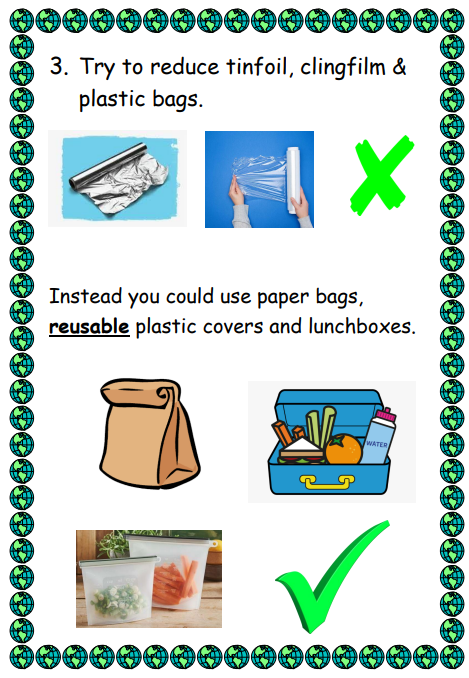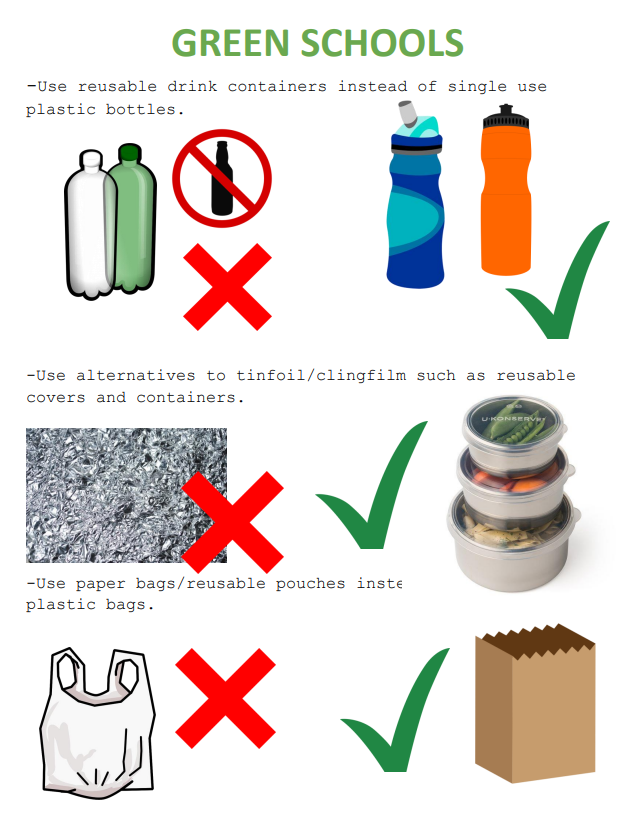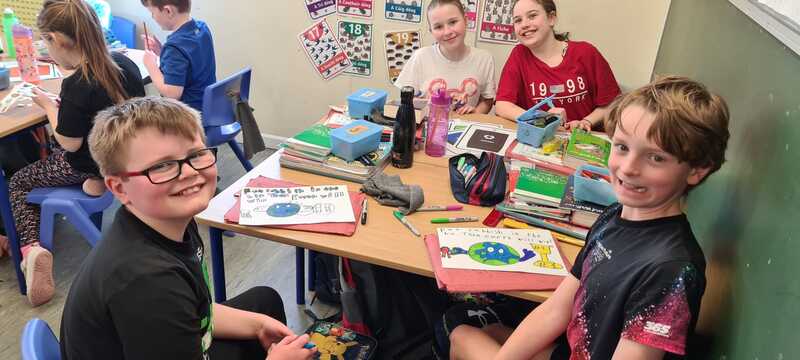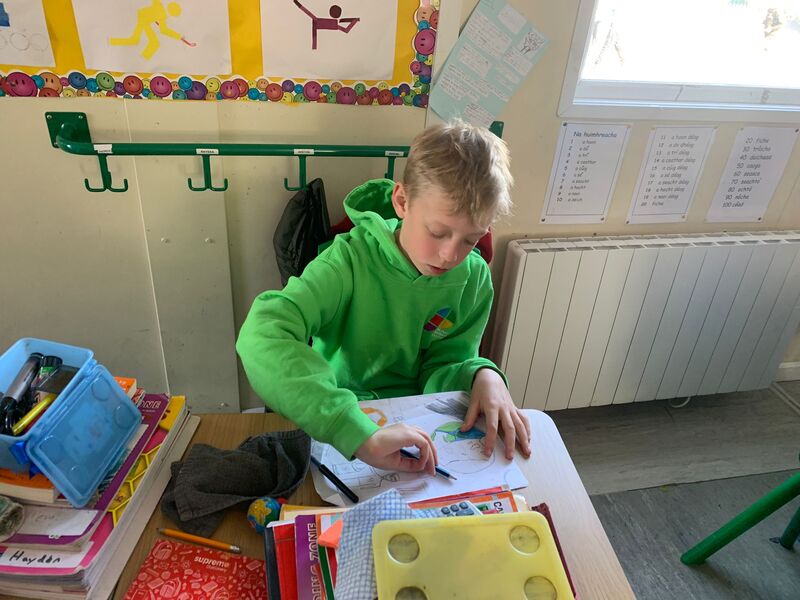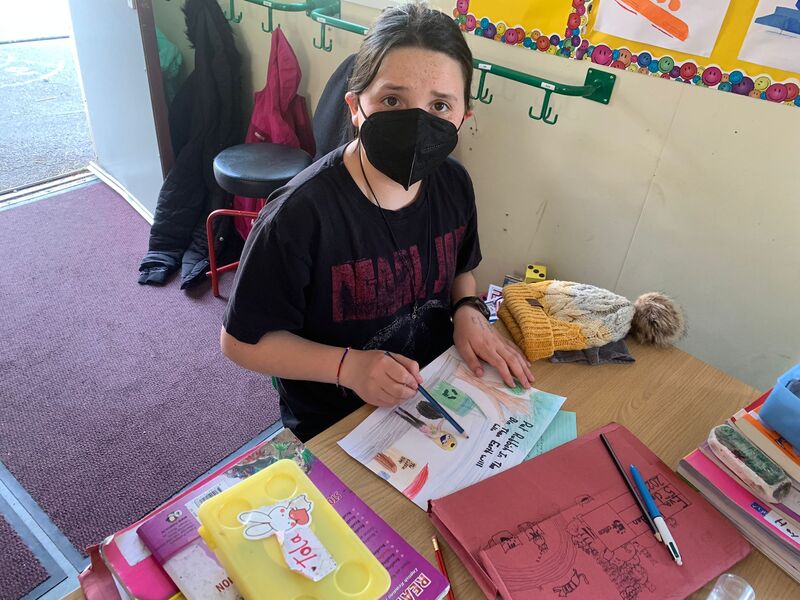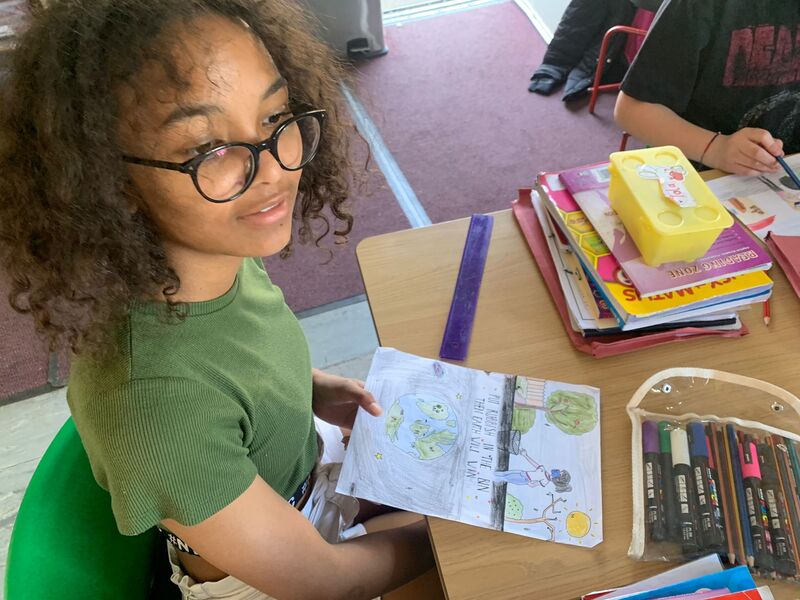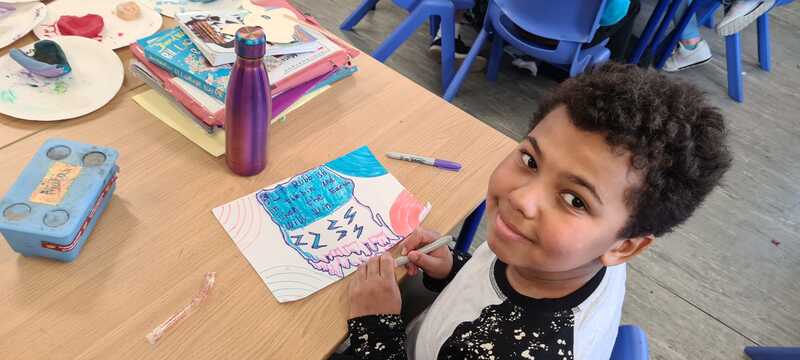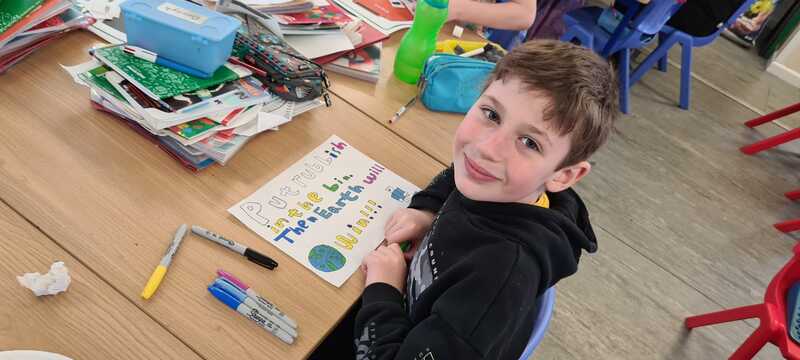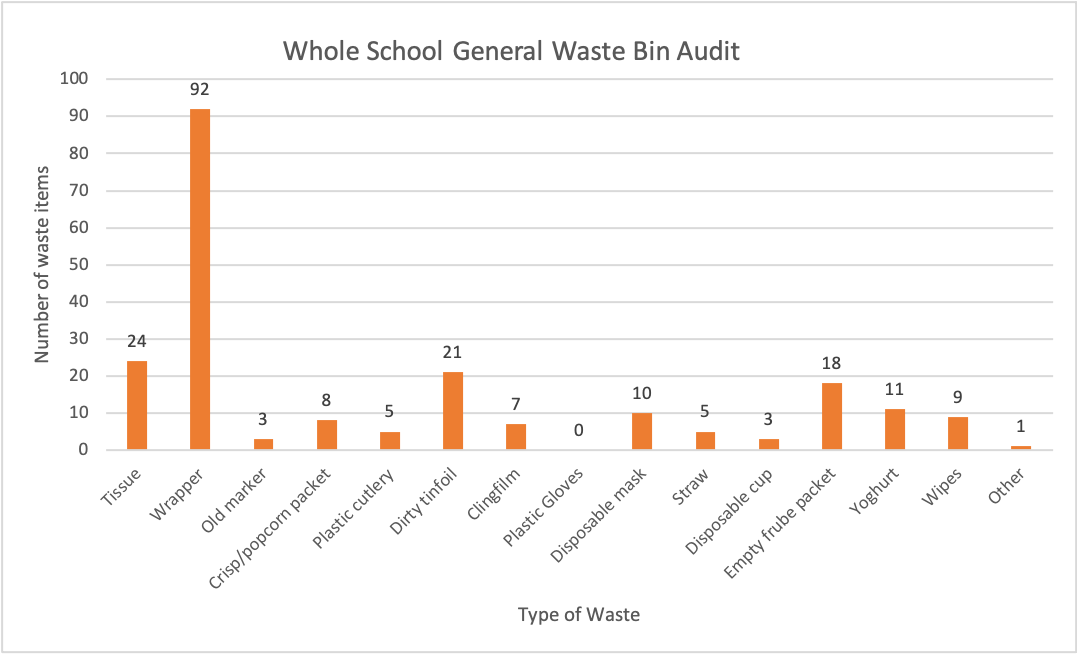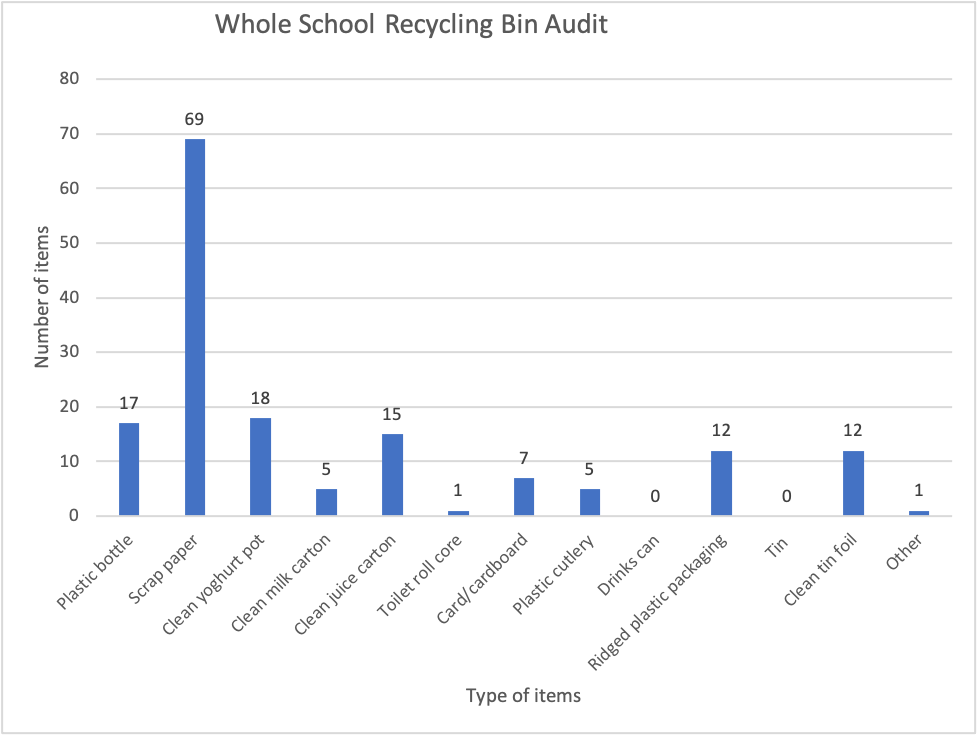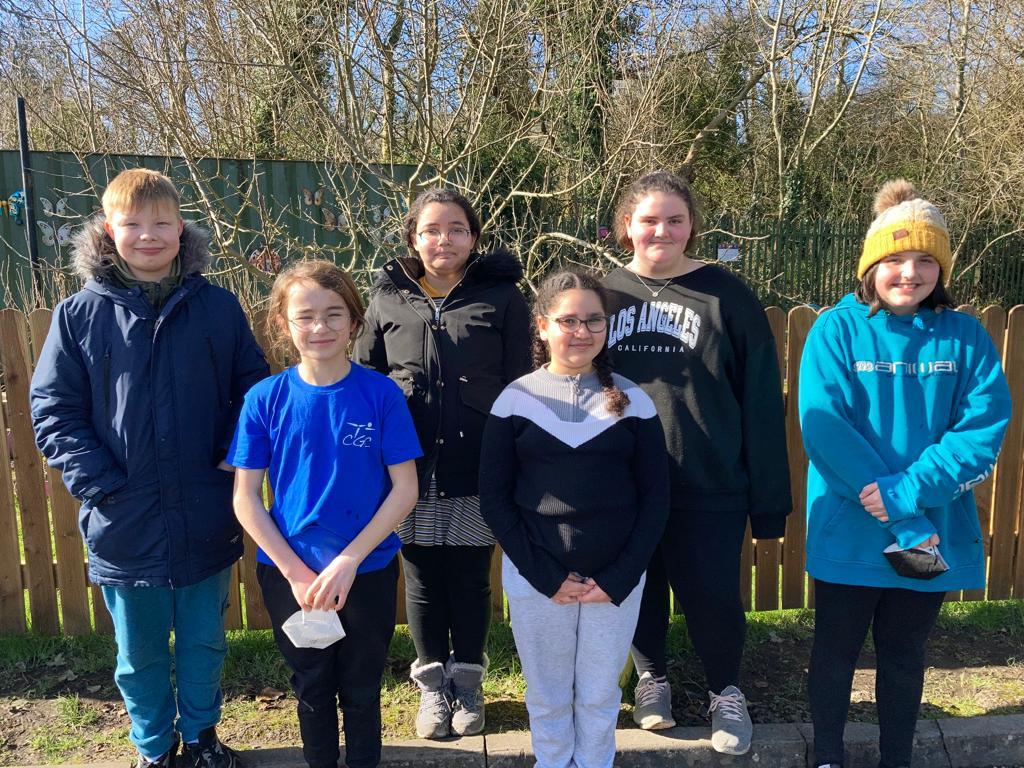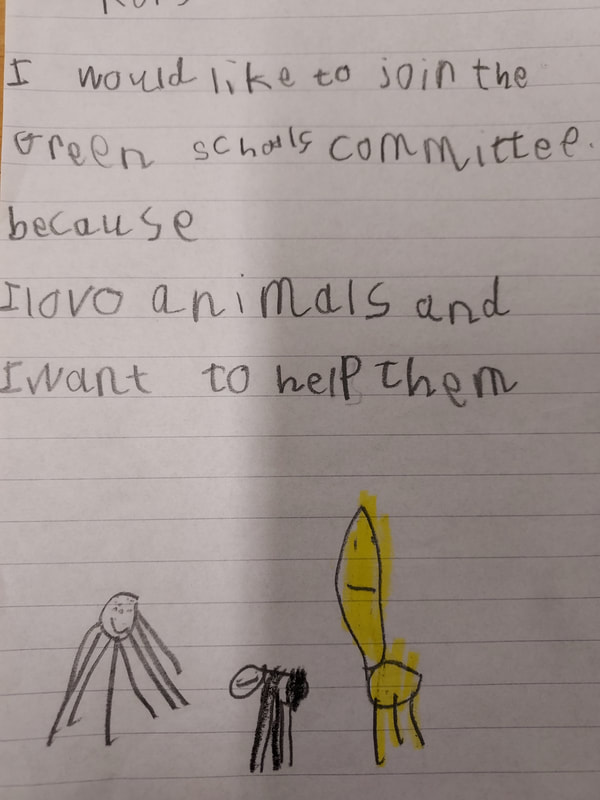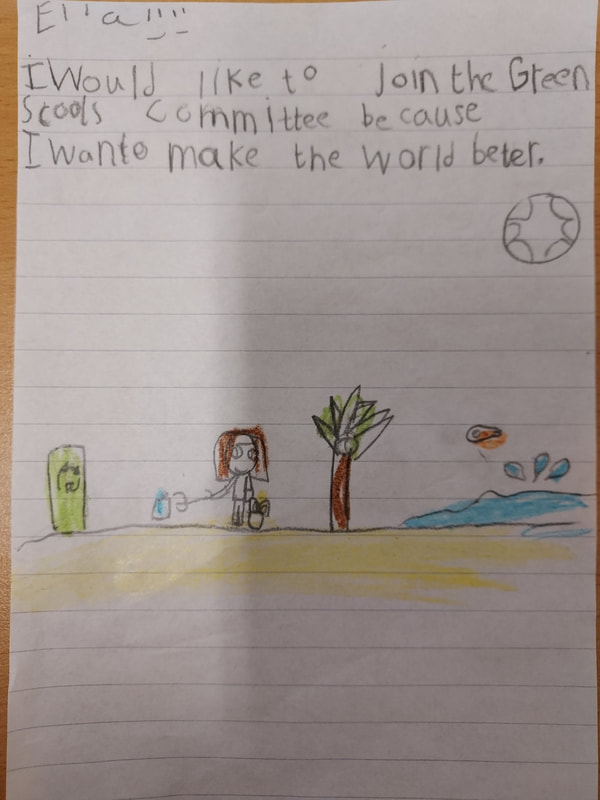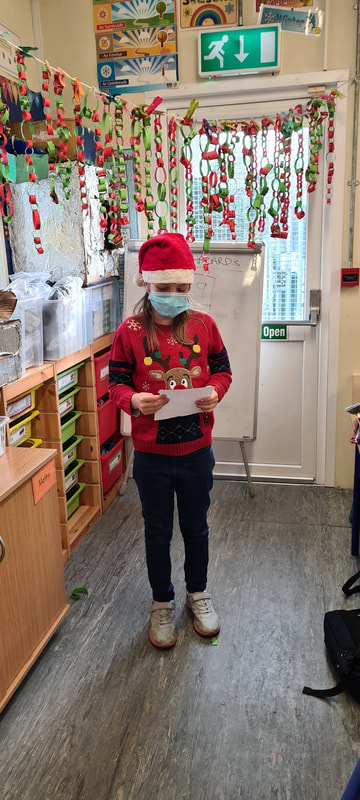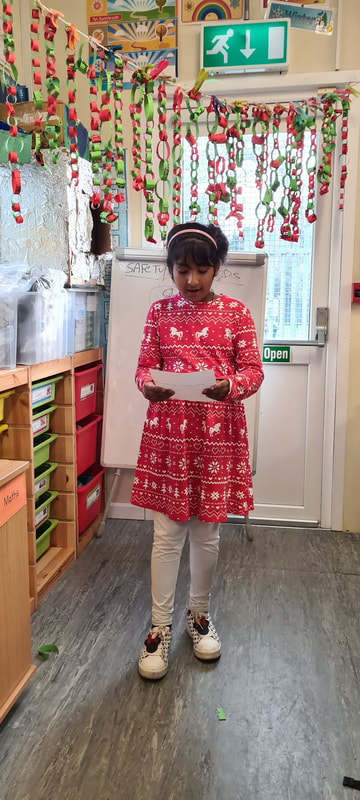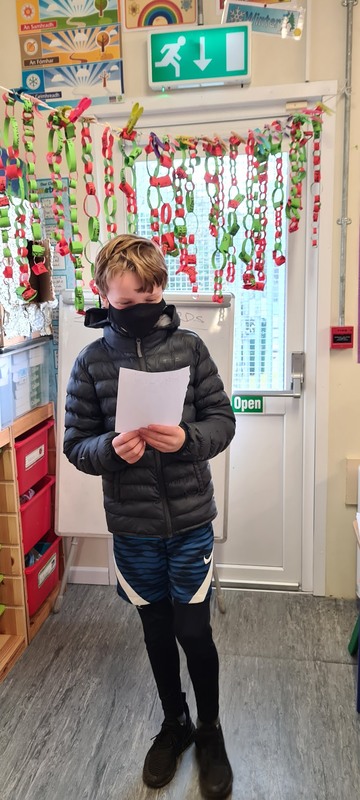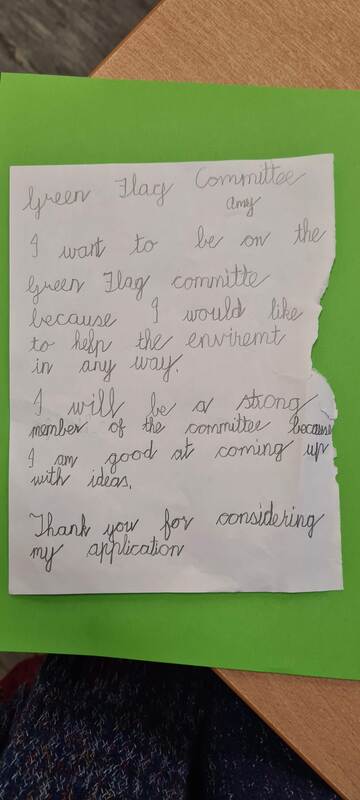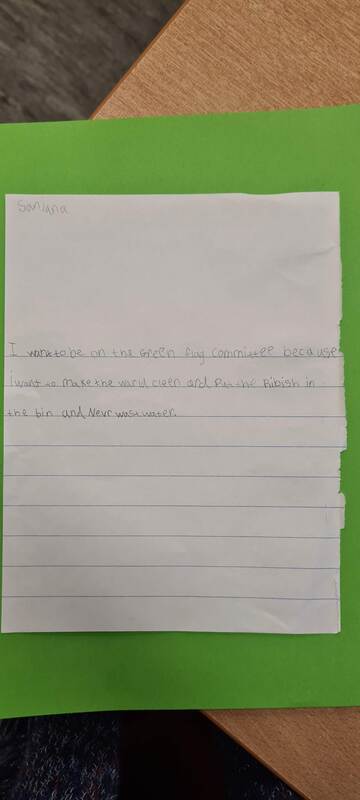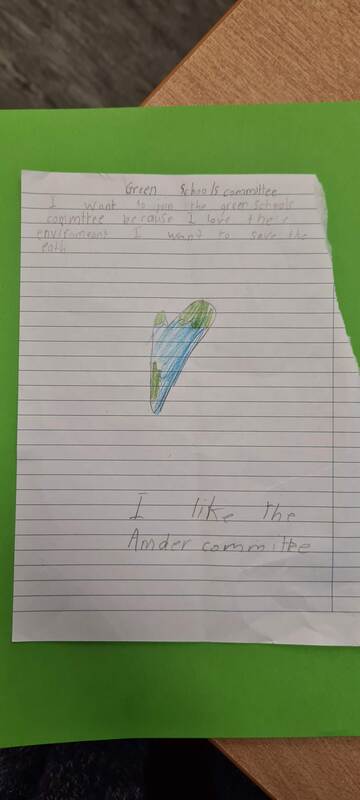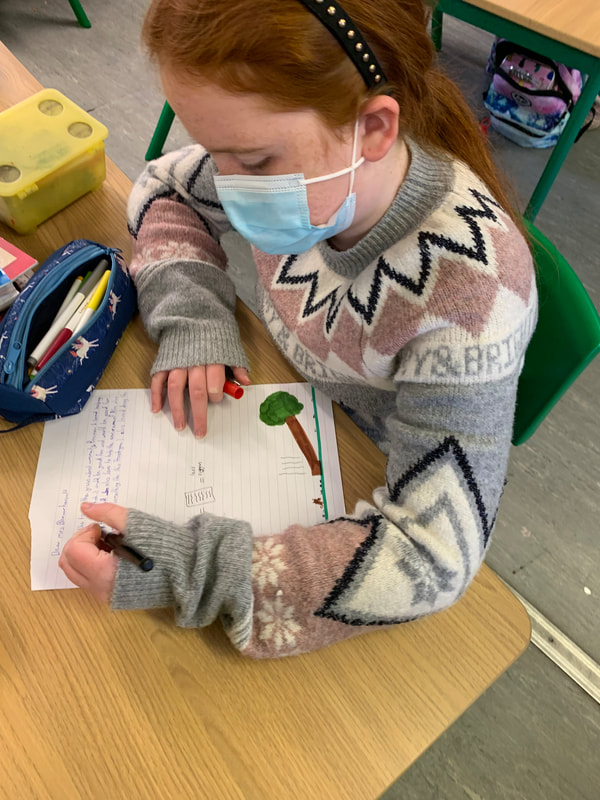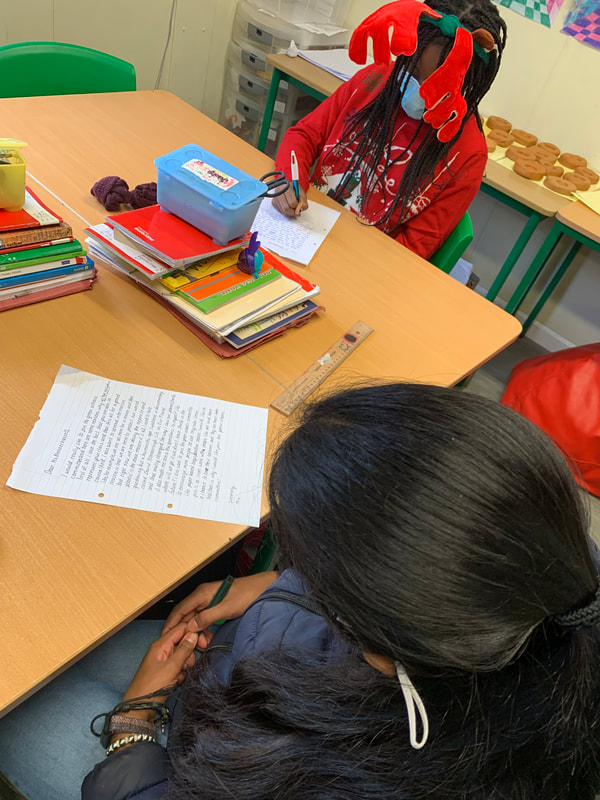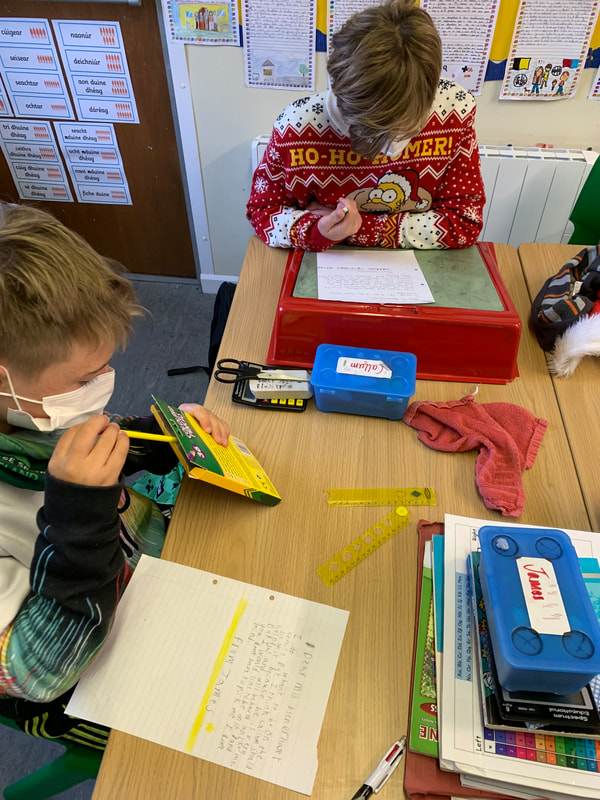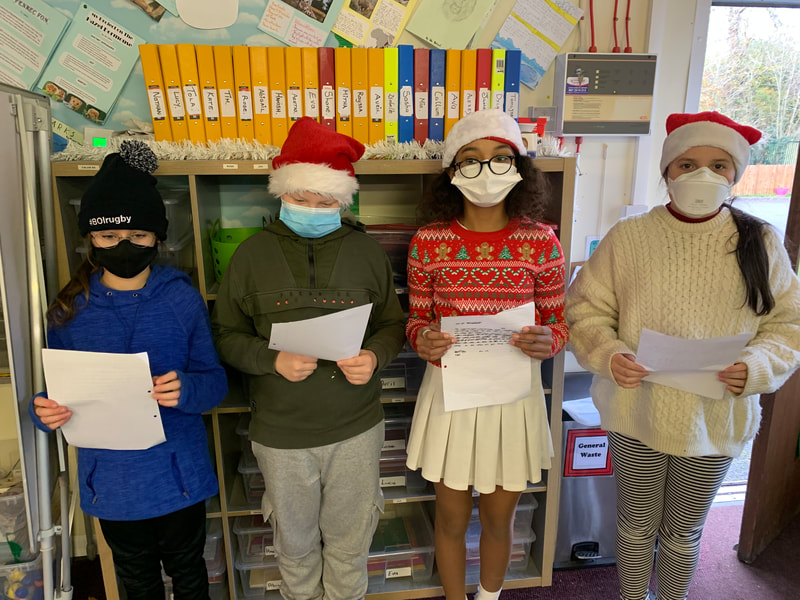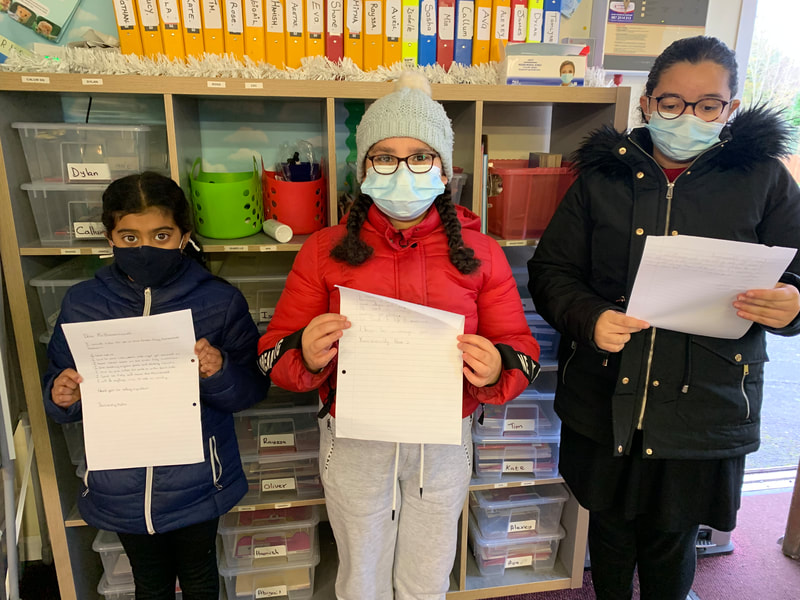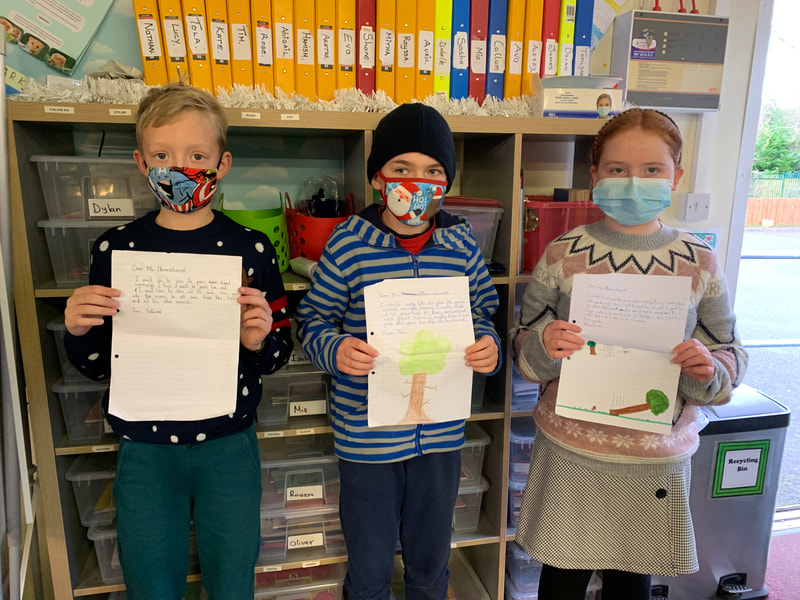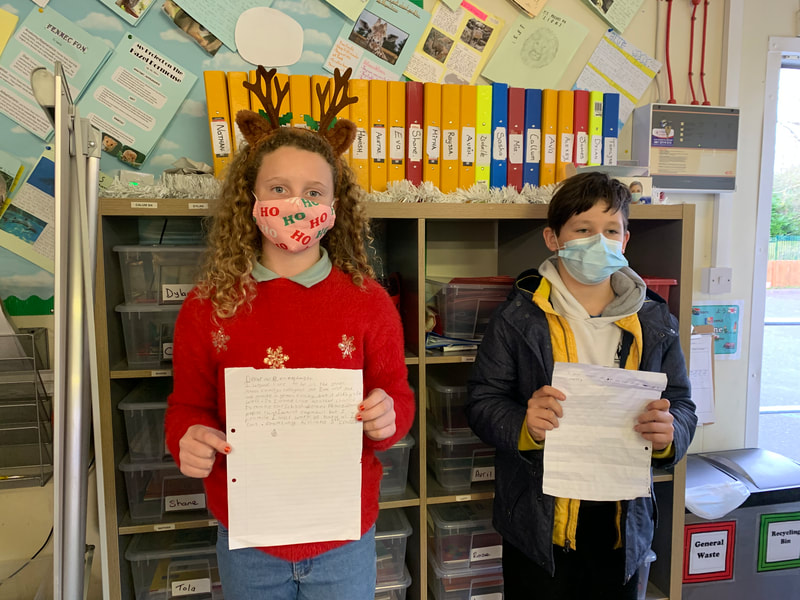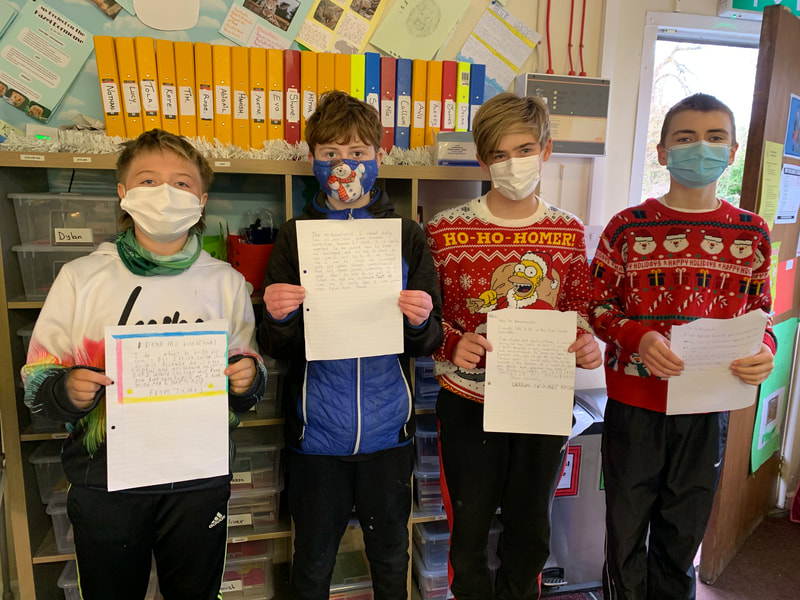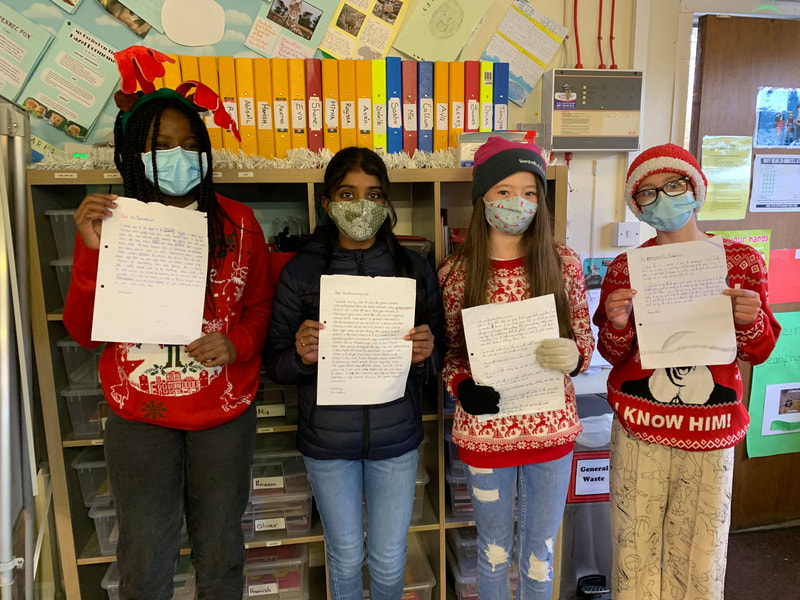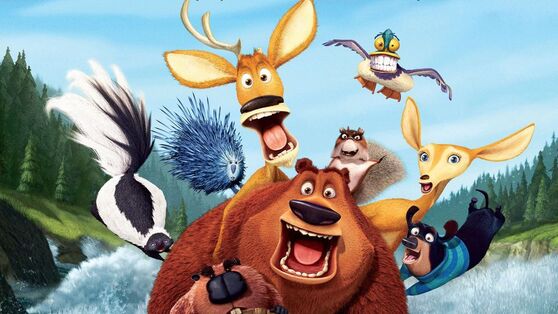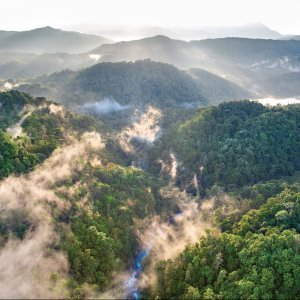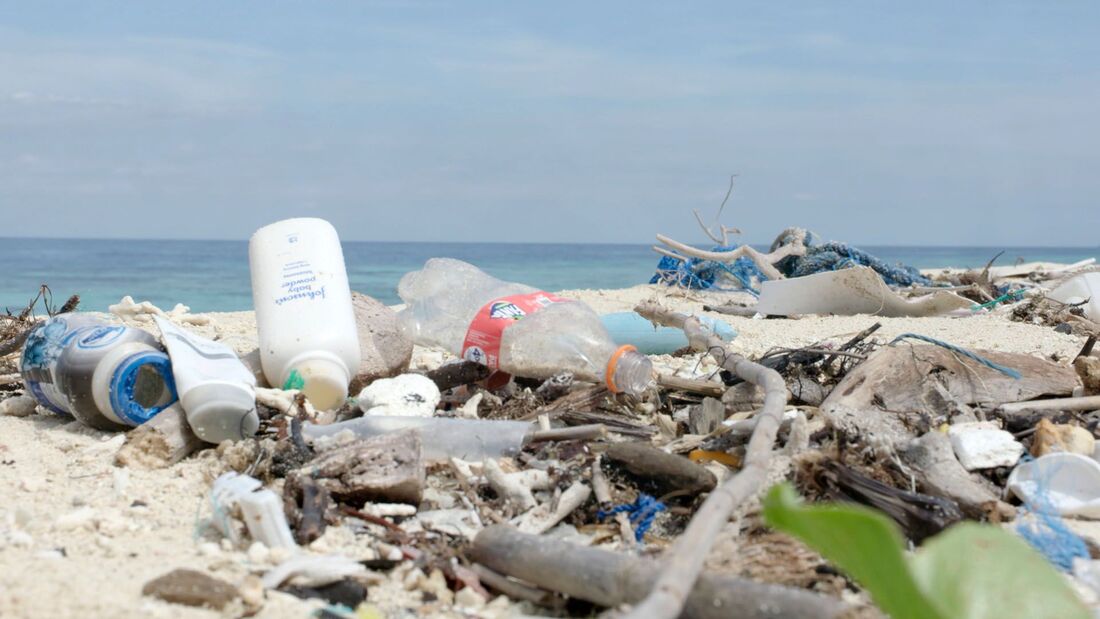Green School Visit
!As part of the Green School Programme, a visitor came to have a look at all the things we have been working on. Her name was Bernadette and she works in Meath County Council. The green school committee met with her and presented all of our hard work. She asked lots of questions about our meetings, how we collected our data, our action day and targets. It was a really interesting visit and we really hope to be awarded our Green Flag after everything we have achieved!
She also asked us about what we have learned from taking part in the programme.
- We have gained confidence in talking in front of our class and others.
- We have learned how to collect, present and interpret data and prepare findings and conclusions which we might need in our jobs when we are older.
- We are proud of ourselves that we are taking these steps to help the Earth.
The Green School Committee did a fantastic job and we are very proud of how they represented our school.
She also asked us about what we have learned from taking part in the programme.
- We have gained confidence in talking in front of our class and others.
- We have learned how to collect, present and interpret data and prepare findings and conclusions which we might need in our jobs when we are older.
- We are proud of ourselves that we are taking these steps to help the Earth.
The Green School Committee did a fantastic job and we are very proud of how they represented our school.
Results of our Green School Actions so far:
Actions/Targets
Classrooms
Conclusion:We are very happy to have made such progress in or aim to reduce the amount of waste produced in our school.
We have made progress on all targets and we will continue to embed them in our daily routines.
Classrooms
- Reminder in all classrooms to put pencil shavings in compost bins - Achieved
- Make sure yoghurt pots are washed out and then put into recycling bins - Achieved
- Use alternatives to tin foil - Ongoing
- Make sure both sides of paper is used - Ongoing
- Use some recyclable waste for art projects - Ongoing
- Use re-useable drink containers instead of single use plastic bottles - Achieved
- Use alternatives to tinfoil/clingfilm such as re-useable covers and containers - Ongoing
- Use paper bags or re-useable pouches instead of single use plastic bags - Ongoing
Conclusion:We are very happy to have made such progress in or aim to reduce the amount of waste produced in our school.
We have made progress on all targets and we will continue to embed them in our daily routines.
Waste Audit Data and results of analysis
Results:
Findings:
- The greatest item of waste in our general waste bins is still wrappers followed by tissues and now other.
- There were no yoghurt cartons going into the general waste bins anymore.
- The number of wrappers going into the bin has reduced from 92 to 37. Tinfoil has dropped from 21 to 5.
- From observation, there has also been a reduction in the use of single use plastic bags and most are using re-useable tubs/packaging.
- There were some other things we noticed. We still have some masks, plastic cutlery and wipes going into our general waste bins. We have to use these for Covid reasons but in time, if restrictions ease again we can reduce the waste of these items.
- Overall the amount of waste going into the bins has reduced.
Findings:
- Continue to use alternatives to tinfoil/clingfilm such as re-useable covers and containers.
- Continue to use paper bags or re-useable pouches instead of single use plastic bags.
- Make sure yoghurt pots are washed out and then put into recycling bins – achieved!
Results:
Findings:
- The greatest item that ends up in our recycling bin is scrap paper but this has reduced from 69 to 42.
- We noted that there are quite a few plastic bottles going into our recycling. This has significantly dropped from 17 to 3.
- The only item that increased was the number of yoghurt pots. This reflects our target of making sure all yoghurt pots are washed out and go into recycling instead of general waste.
- Overall the amount of waste going into the recycling bins has reduced.
Findings:
- Continue to use re-useable drink containers instead of single use plastic bottles
- Continue to make sure both sides of paper is used.
- Continue to use some recyclable waste for art projects.
Results:
Findings:
- The greatest item that ends up in our recycling bin is scrap paper but this has reduced from 69 to 42.
- We noted that there are quite a few plastic bottles going into our recycling. This has significantly dropped from 17 to 3.
- The only item that increased was the number of yoghurt pots. This reflects our target of making sure all yoghurt pots are washed out and go into recycling instead of general waste.
- Overall the amount of waste going into the recycling bins has reduced.
Findings:
- Continue to use re-useable drink containers instead of single use plastic bottles
- Continue to make sure both sides of paper is used.
- Continue to use some recyclable waste for art projects.
Action Day!
St. Peter's National School's Green School Action Day was jam packed with activities and fun!
Waste sorting activity
We completed this activity in groups to make sure we had a reminder that when we are on our 'An Taisce Spring Clean Up' that we can separate the litter that we find accurately as we go.
We completed this activity in groups to make sure we had a reminder that when we are on our 'An Taisce Spring Clean Up' that we can separate the litter that we find accurately as we go.
Pick litter in your area dos and don'ts
Before we went on our Spring Clean Up walk we all discussed the dos and don'ts of a Spring Clean up to make sure we all stayed safe.
Before we went on our Spring Clean Up walk we all discussed the dos and don'ts of a Spring Clean up to make sure we all stayed safe.
Litter Hotspot Data record sheet
The children discussed the litter hotspot record sheet and got ready to be the best litter detectives in Dunboyne!
St. Peter's National Spring Clean up!
The children in JI-1st Class focused on the playwark area across from the school. This is somewhere the children play most days after school so it was a great place to start!
The children in 2nd-4th Class went into the village and were litter detectives in the green area near Spar.
The children in 5th and 6th covered the large green behind the play park and were super litter detectives there! Have a look at the pictures below of all our litter detectives in action!
The children discussed the litter hotspot record sheet and got ready to be the best litter detectives in Dunboyne!
St. Peter's National Spring Clean up!
The children in JI-1st Class focused on the playwark area across from the school. This is somewhere the children play most days after school so it was a great place to start!
The children in 2nd-4th Class went into the village and were litter detectives in the green area near Spar.
The children in 5th and 6th covered the large green behind the play park and were super litter detectives there! Have a look at the pictures below of all our litter detectives in action!
The children in JI, SI and 1st Class were excellent litter detectives!
The children in JI, SI and 1st Class were excellent litter spotters in the playwark opposite the school. They spotted so much litter for us all to collect and they collected all the data and identified the litter hotspots so that we could accurately write to our County Council and ask them to install more public bins in the most appropriate places.
The children in 2nd-4th Class were brilliant at finding litter black spots!
5th and 6th did a super job collecting litter in Dunboyne too!
Have a look at the data collected below!
Discussion of findings
On our return to the classrooms we analysed our results on our litter hotspot sheets. We asked the questions 'What are the litter black spots in Dunboyne and the areas explored?' and 'Where is the best location for a public bin to be installed?'
On our return to the classrooms we analysed our results on our litter hotspot sheets. We asked the questions 'What are the litter black spots in Dunboyne and the areas explored?' and 'Where is the best location for a public bin to be installed?'
Letter of action to MCC
Construct a whole class letter addressed to Meath County Council for submission as part of our Action Day. This can be very short!
Construct a whole class letter addressed to Meath County Council for submission as part of our Action Day. This can be very short!
Curriculum Links Activities
Junior, Senior and 1st Class
Subject: Science. Strand Unit: Sound. Subject: Music. Strand Unit:Listening and Responding
We explored ways of making sounds using recycled, home-made instruments. We brought in plastic bottles from home and filled with them with different materials. We used rice, peas, pasta and salt. We tested what sounds the instruments made by shaking them. Some bottles made a loud sound while others made a quiet sound. Once we had identified the different sounds we had lots of fun decorating the bottles and playing our new instruments!
We explored ways of making sounds using recycled, home-made instruments. We brought in plastic bottles from home and filled with them with different materials. We used rice, peas, pasta and salt. We tested what sounds the instruments made by shaking them. Some bottles made a loud sound while others made a quiet sound. Once we had identified the different sounds we had lots of fun decorating the bottles and playing our new instruments!
Subject: English
The children in JI and SI have been learning the rhyme 'This Old Earth' while 1st class have been completing reading comprehension based on the Green School theme.
The children in JI and SI have been learning the rhyme 'This Old Earth' while 1st class have been completing reading comprehension based on the Green School theme.
2nd, 3rd and 4th Class
Subject: Science. Strand Unit: Forces.
We used recycled materials to construct boats to investigate floating and sinking. First we designed a boat we thought would be buoyant enough to stay afloat in water. We then selected recycled materials to make the boat and afterwards we tested our boats to see if they would sink or float. Light, non-permeable materials such as plastic food containers made great bases for our boats. They are not dense enough to sink and they do not absorb water. Cardboard eventually absorbed too much water and caused some vessels to sink. Straws and scraps of paper made great sails to help keep our vessels afloat. It was great fun designing, making and experimenting with everyday recycled materials.
We used recycled materials to construct boats to investigate floating and sinking. First we designed a boat we thought would be buoyant enough to stay afloat in water. We then selected recycled materials to make the boat and afterwards we tested our boats to see if they would sink or float. Light, non-permeable materials such as plastic food containers made great bases for our boats. They are not dense enough to sink and they do not absorb water. Cardboard eventually absorbed too much water and caused some vessels to sink. Straws and scraps of paper made great sails to help keep our vessels afloat. It was great fun designing, making and experimenting with everyday recycled materials.
5th and 6th Class
Subject: Art. Strand Unit: Construction
We used toilet rolls collected over time to carry out a construction challenge. In our teams we had to work together to build any construction/shape/sculpture we wished. The challenge was we couldn’t use any additional items like glue or string to help stick the toilet rolls together. We eventually figured out that if we cut slits into the toilet rolls we were able to slot them together to build our constructions. Our three teams made a castle, robots and a sculpture.
We used toilet rolls collected over time to carry out a construction challenge. In our teams we had to work together to build any construction/shape/sculpture we wished. The challenge was we couldn’t use any additional items like glue or string to help stick the toilet rolls together. We eventually figured out that if we cut slits into the toilet rolls we were able to slot them together to build our constructions. Our three teams made a castle, robots and a sculpture.
Subject: Science. Strand Unit: Materials
We took part in an Egg Drop Challenge. We used a variety of recyclable materials and our challenge was to use a selection of these materials and work in groups to build and design a structure that would protect an egg so that it wouldn’t break when it was dropped from a height. All of our designs were different, and we used some soft and some hard materials. It was lots of fun and the only egg to break was the teachers!
We took part in an Egg Drop Challenge. We used a variety of recyclable materials and our challenge was to use a selection of these materials and work in groups to build and design a structure that would protect an egg so that it wouldn’t break when it was dropped from a height. All of our designs were different, and we used some soft and some hard materials. It was lots of fun and the only egg to break was the teachers!
We have identified our targets and the actions needed!
Actions/Targets:
- Reminder in all classrooms to put pencil shavings in compost bins.
- Use re-useable drink containers instead of single use plastic bottles
- Make sure both sides of paper is used.
- Use some recyclable waste for art projects.
- Use alternatives to tinfoil/clingfilm such as re-useable covers and containers.
- Use paper bags or re-useable pouches instead of single use plastic bags.
- Make sure yoghurt pots are washed out and then put into recycling bins.
Classrooms
- Reminder in all classrooms to put pencil shavings in compost bins.
- Make sure yoghurt pots are washed out and then put into recycling bins.
- Use alternatives to tin foil
- Make sure both sides of paper is used.
- Use some recyclable waste for art projects.
- Use re-useable drink containers instead of single use plastic bottles
- Use alternatives to tinfoil/clingfilm such as re-useable covers and containers.
- Use paper bags or re-useable pouches instead of single use plastic bags.
Waste Audit Data and results of analysis
Results:
Findings:
- The greatest item of waste in our general waste bins is wrappers followed by tissues and dirty tinfoil.
- We also noted that there were yoghurt pots going into general waste. We have decided that we can wash these out and they can go into recycling bins instead.
- The other items we think we could improve on are the wrappers, dirty tinfoil and clingfilm. We think some families might be able to swap tinfoil and clingfilm for alternative re-useable items to cover sandwiches, etc.
- From observation, it has also been noted that there are often single use plastic bags being used for some lunches. We would encourage families to look at alternatives like re-useable pouches or paper bags.
- There were some other things we noticed. We have masks, plastic cutlery and wipes going into our general waste bins. We have to use these for Covid reasons but in time, if restrictions ease again we can reduce the waste of these items.
Findings:
- Use alternatives to tinfoil/clingfilm such as re-useable covers and containers.
- Use paper bags or re-useable pouches instead of single use plastic bags.
- Make sure yoghurt pots are washed out and then put into recycling bins.
Results:
Findings:
- The greatest item that ends up in our recycling bin is scrap paper. We think we might be able to reduce this by keeping some paper to use for art projects and also to use the second side of the paper for drawing.
- We noted that there are quite a few plastic bottles going into our recycling. Although it is great they are in the recycling bin and not general waste bin, maybe people could use some re-useable plastic bottles to reduce our overall waste.
- Another suggestion is to keep some waste like the clean tin foil to use in art projects.
Findings:
- Use re-useable drink containers instead of single use plastic bottles
- Make sure both sides of paper is used.
- Use some recyclable waste for art projects.
Results;
Findings:
- It is great to see so many people using the compost bin correctly.
Findings:
- During observations, some pencil shavings are still being put in the general waste bin. Reminder in all classrooms to put pencil shavings in compost bins.
Application for the Green School's Committee
After watching the documentaries the children discussed what St. Peter's could do during the Green School's process to help reduce our Litter and Waste and our wider impact on the environment. The children reflected on what they felt they would like to contribute to the process and examined if they would like to become a Green School's committee member. The children wrote letter's of application to the Green school's committee coordinator. They were fantastic! Have a look at the children presenting their letters in the photos below!
1st Class Letters of Application
2nd, 3rd & 4th Class Letters of Application
5th & 6th Class Letters of Application
Green School's Introduction
This year we are going to try and achieve a Green Flag for St. Peter's National School, specifically the Litter and Waste Green Flag. To help the children understand the impact we have on our environment and how our litter and waste effects the natural world around us we all watched a Green School's inspired programme in class. This sparked interesting discussions amongst the children and ideas began to flow on what we can do in St. Peter's to help decrease our Litter and Waste. Look below at the interesting information the children learned from the programmes they watched.
JI, SI and 1st Class -
Junior, Senior and 1st Class watched a movie called Open Season. It tells the story about a bear named Boog. At the beginning Boog leads a cosy life with his owner but ends up being chased by a hunter and lost in the woods. We discussed the story after we had finished and talked about how important it is that we care for all animals in our environment and in the wider world. Our topic in Religion this month is all about the word “caring” and we focused on caring for pets. The children were able to make a clear link to that and the message in the film about the need to respect all animals in the world we live in today
2nd, 3rd and 4th Class - Our Planet Nature Documentary
|
We learned some really interesting facts:
- Pieces of plastic can get caught onto sea animal’s bodies which can make it hard for them to swim, eat and behave as normal.
- An interesting fact we learned was that there is an island made completely of plastic in the Pacific Ocean, nearly double the size of Texas State.
- When plastic enters our oceans, it then starts to break down into small plastic pellets called microplastics. These microplastics attract toxins and then sea animals consume them.
- The toxins can infect the sea animal’s digestive systems and the microplastics can damage the sea animal’s internal organs.
- One tiny piece of microplastic can damage multiple sea animals. This can happen when sea animals eat each other and it can also affect birds.
- Not only that, but it can also affect us as humans as we consume fish which could contain these toxins and microplastics.
- So in essence we are not only damaging sea animals and the environment, we are also potentially damaging ourselves.
- We have talked about it and we would really like the world to reduce the amount of plastic produced and needed for things.
- The other way of helping this problem is working out how to dispose, recycle or re-use plastics efficiently.
- We need to raise awareness in all countries on how to protect our oceans.
- It was a really interesting documentary to watch but very upsetting too, seeing the damage and pain caused to some sea animals. It has really helped us to understand why we need to make small changes to try and help protect our planet.
|
Phone: 01 8026741
Follow: On Facebook
|

